Adapting participatory epidemiology to estimate the incidence of human diseases in Moroto District, Karamoja, Uganda
Tufts University
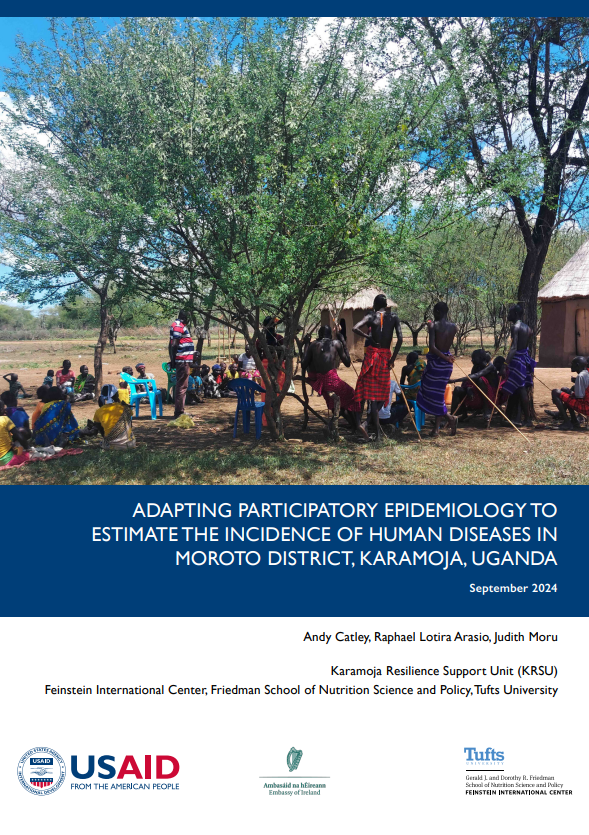
Adapting participatory epidemiology to estimate the incidence of human diseases in Moroto District, Karamoja, Uganda
This study explored the use of participatory epidemiology (PE) to estimate the annual incidences of human diseases in Karamoja, Uganda, with emphasis on diseases associated with water. Adapted PE methods were used successfully to estimate disease incidences in young children and adults, and revealed a rich knowledge on the clinical signs and causes of diseases. The report concludes that PE could be useful for overcoming some of the spatial limitations of the health surveillance system in Karamoja, and the temporal limitations of bi-annual food security and nutrition assessments.
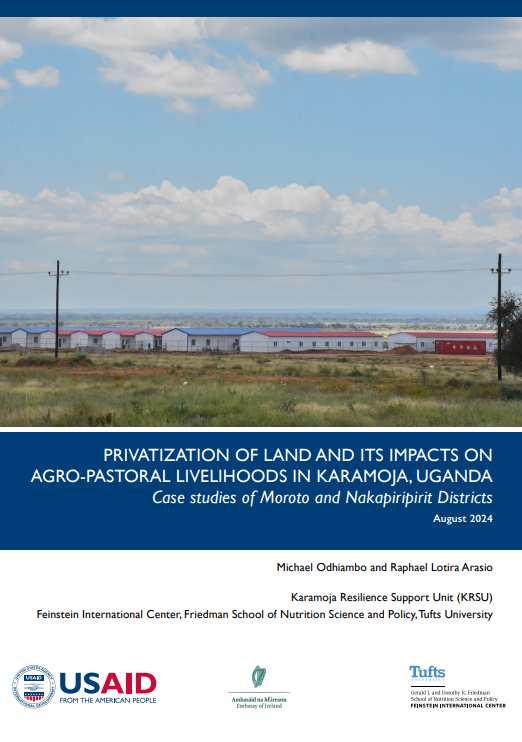
Privatization of Land and its Impacts on Agro-Pastoral Livelihoods in Karamoja, Uganda: Case studies of Moroto and Nakapiripirit Districts
This report presents the findings of a review of land issues in Karamoja, with a particular focus on trends in privatization of communal lands and its impacts on agro-pastoral livelihoods.
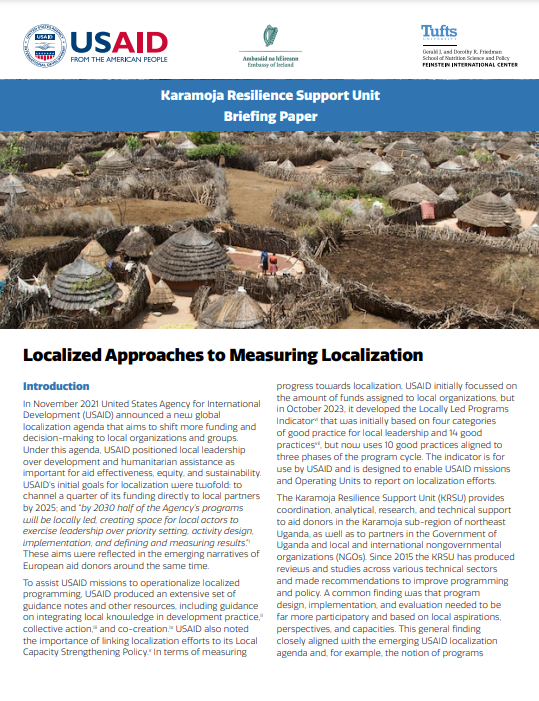
Localized Approaches to Measuring Localization
In November 2021 United States Agency for International Development (USAID) announced a new global localization agenda that aims to shift more funding and decision-making to local organizations and groups. Under this agenda, USAID positioned local leadership over development and humanitarian assistance as important for aid effectiveness, equity, and sustainability.
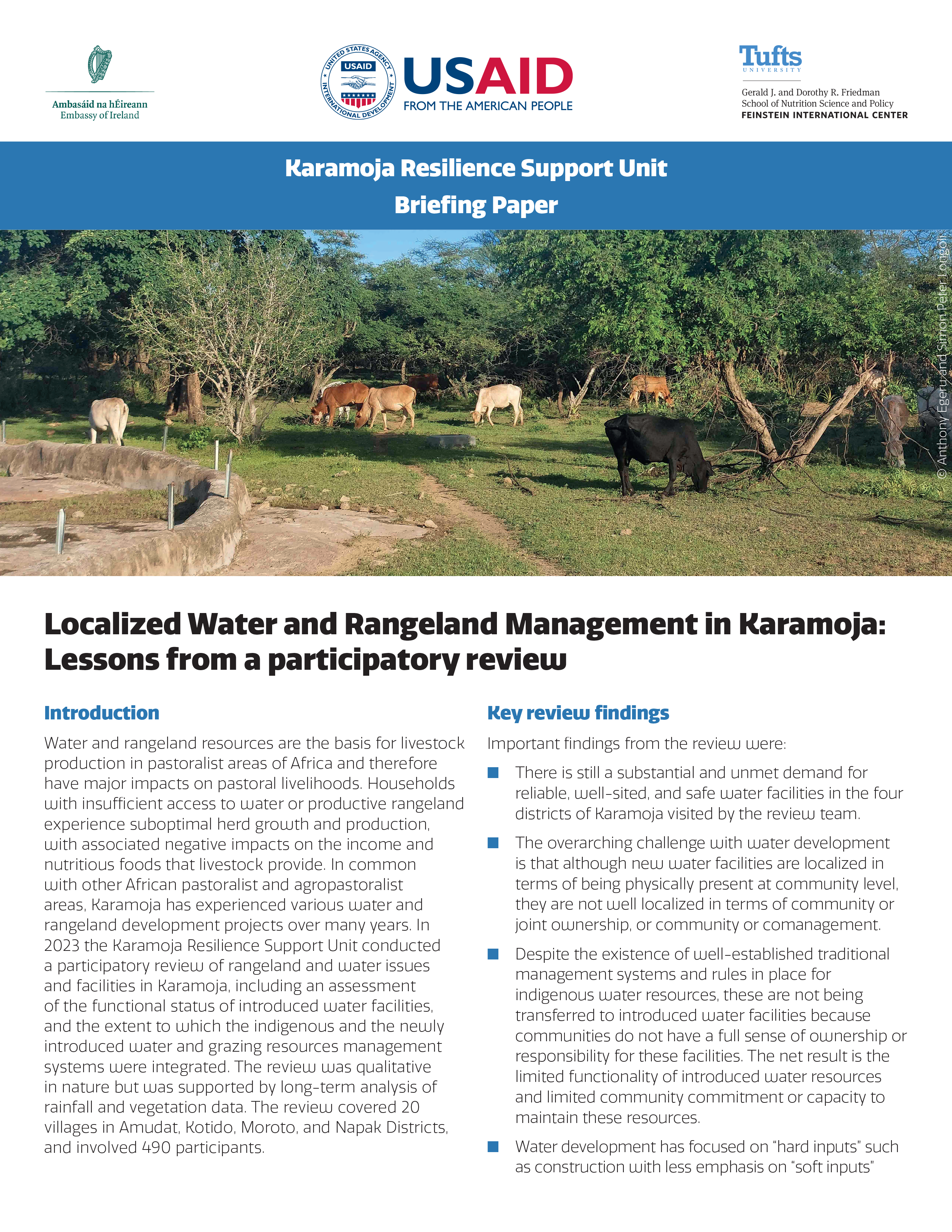
Localized Water and Rangeland Management in Karamoja: Lessons from a participatory review
Water and rangeland resources are the basis for livestock production in pastoralist areas of Africa and therefore have major impacts on pastoral livelihoods. Households with insufficient access to water or productive rangeland experience suboptimal herd growth and production, with associated negative impacts on the income and nutritious foods that livestock provide. In common with other African pastoralist and agropastoralist areas,
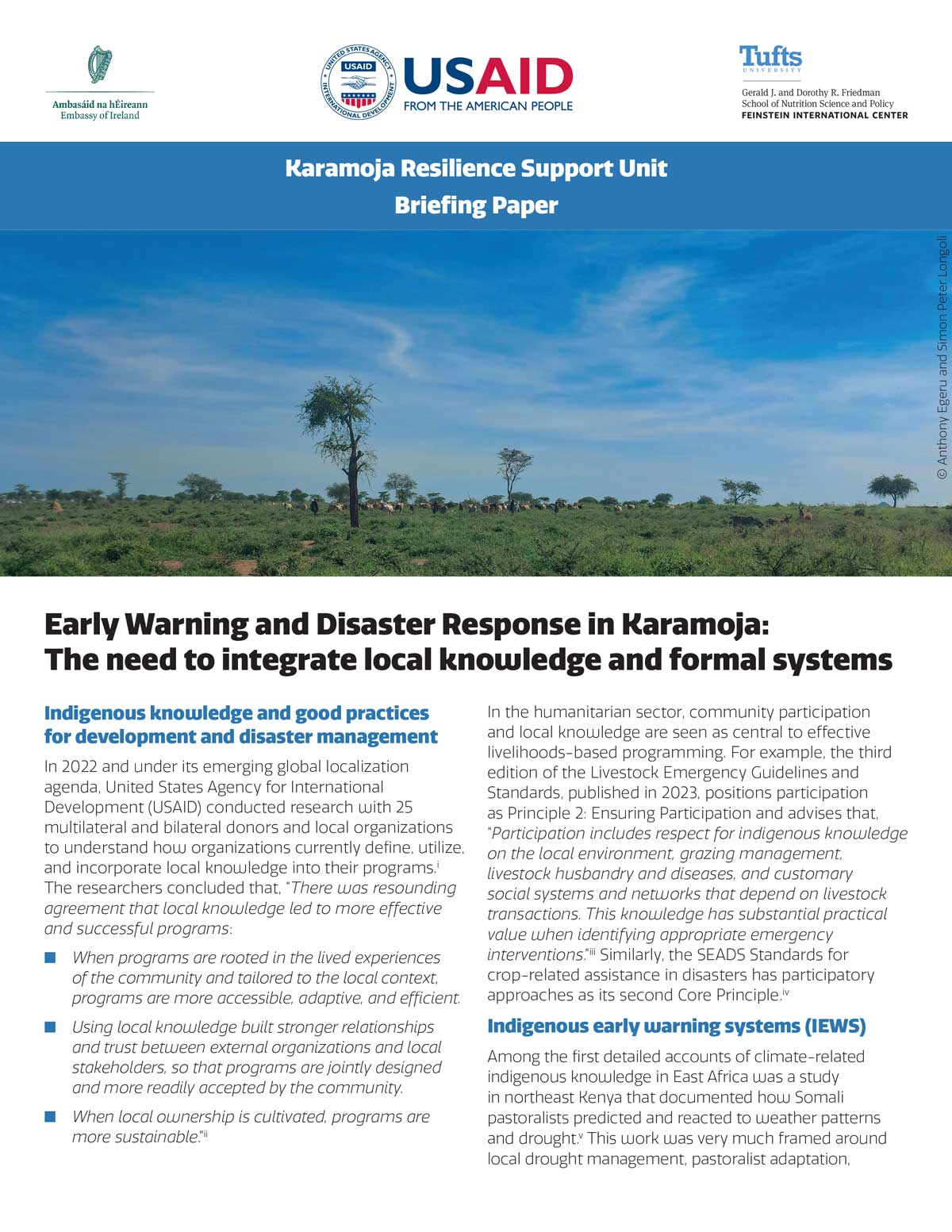
Early Warning and Disaster Response in Karamoja: The need to integrate local knowledge and formal systems
A genuine localized approach to early warning should shift the approach to more of a partnership and coacceptance of the strengths and weaknesses of indigenous and conventional systems.
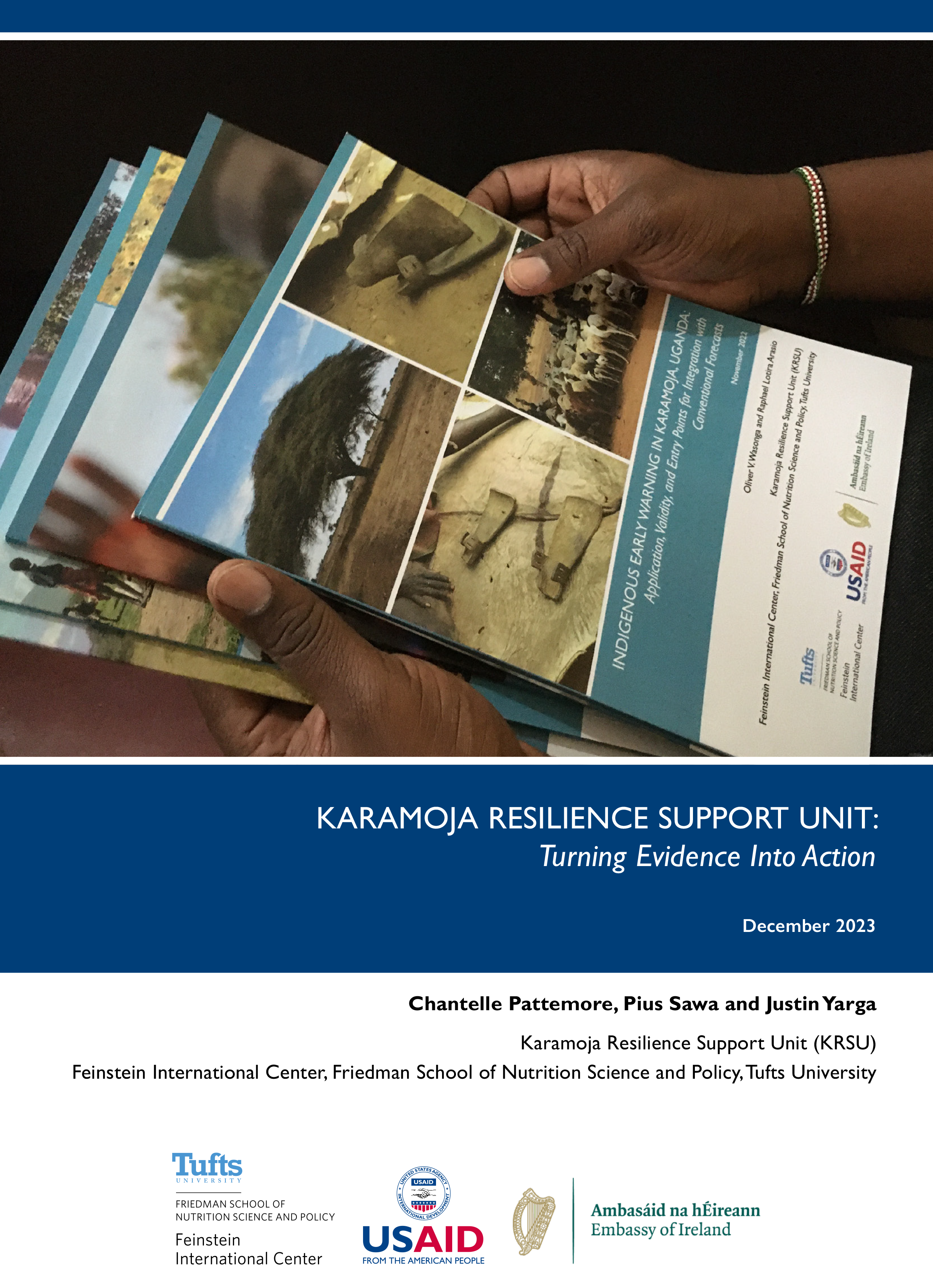
KARAMOJA RESILIENCE SUPPORT UNIT: Turning Evidence Into Action
To gauge understanding of how KRSU’s work benefits and is utilized in Karamoja, a rapid review was conducted in November and December 2023. The review involved face-to-face interviews with a number of the organization’s partners – including non-governmental organizations (NGOs), universities, academics, and donors.
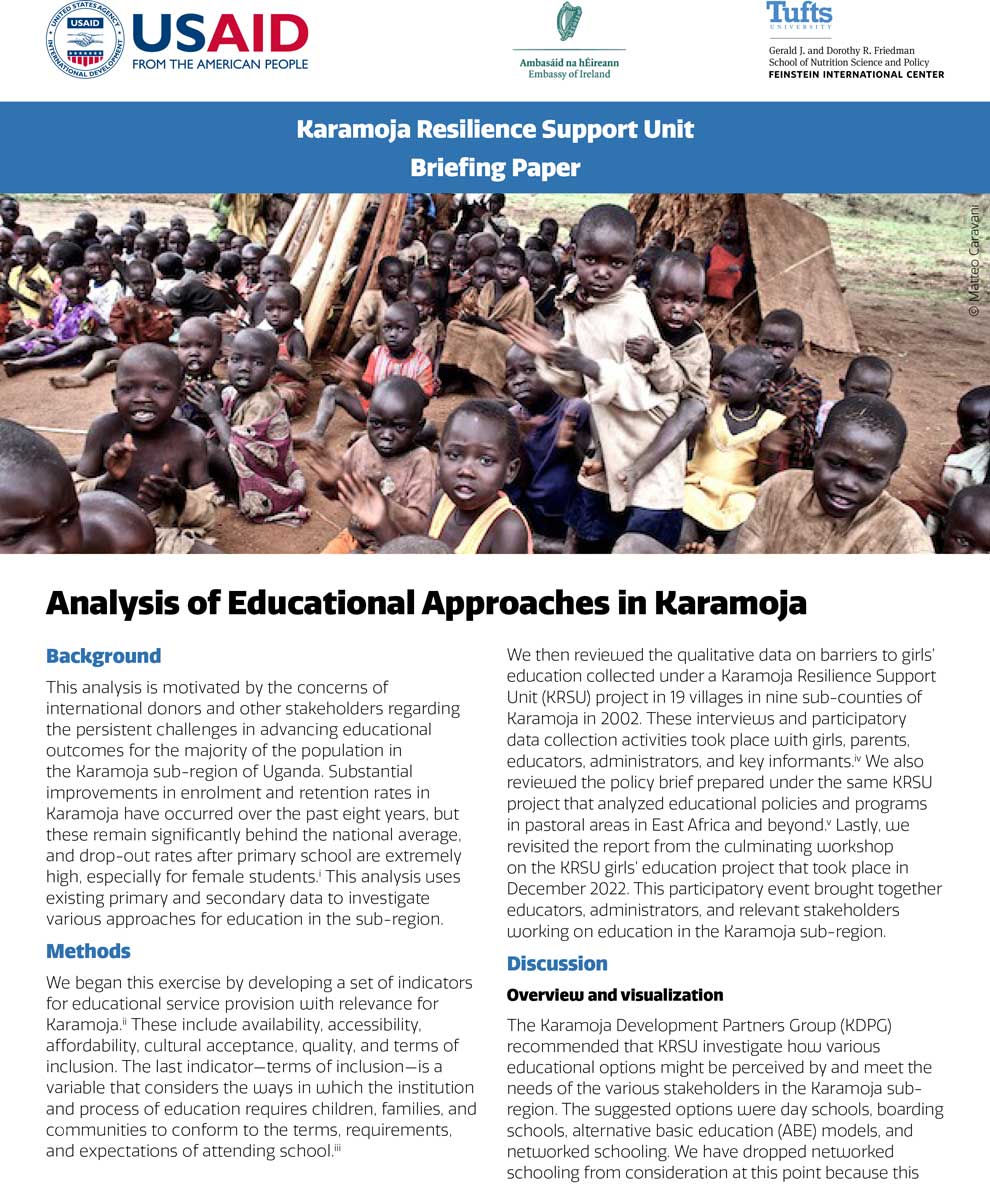
Analysis of Educational Approaches in Karamoja
This analysis is motivated by the concerns of international donors and other stakeholders regarding the persistent challenges in advancing educational outcomes for the majority of the population in the Karamoja sub-region of Uganda. Substantial improvements in enrolment and retention rates in Karamoja have occurred over the past eight years, but these remain significantly behind the national average, and drop-out rates after primary school are extremely high, especially for female students.i This analysis uses existing primary and secondary data to investigate various approaches for education in the sub-region.
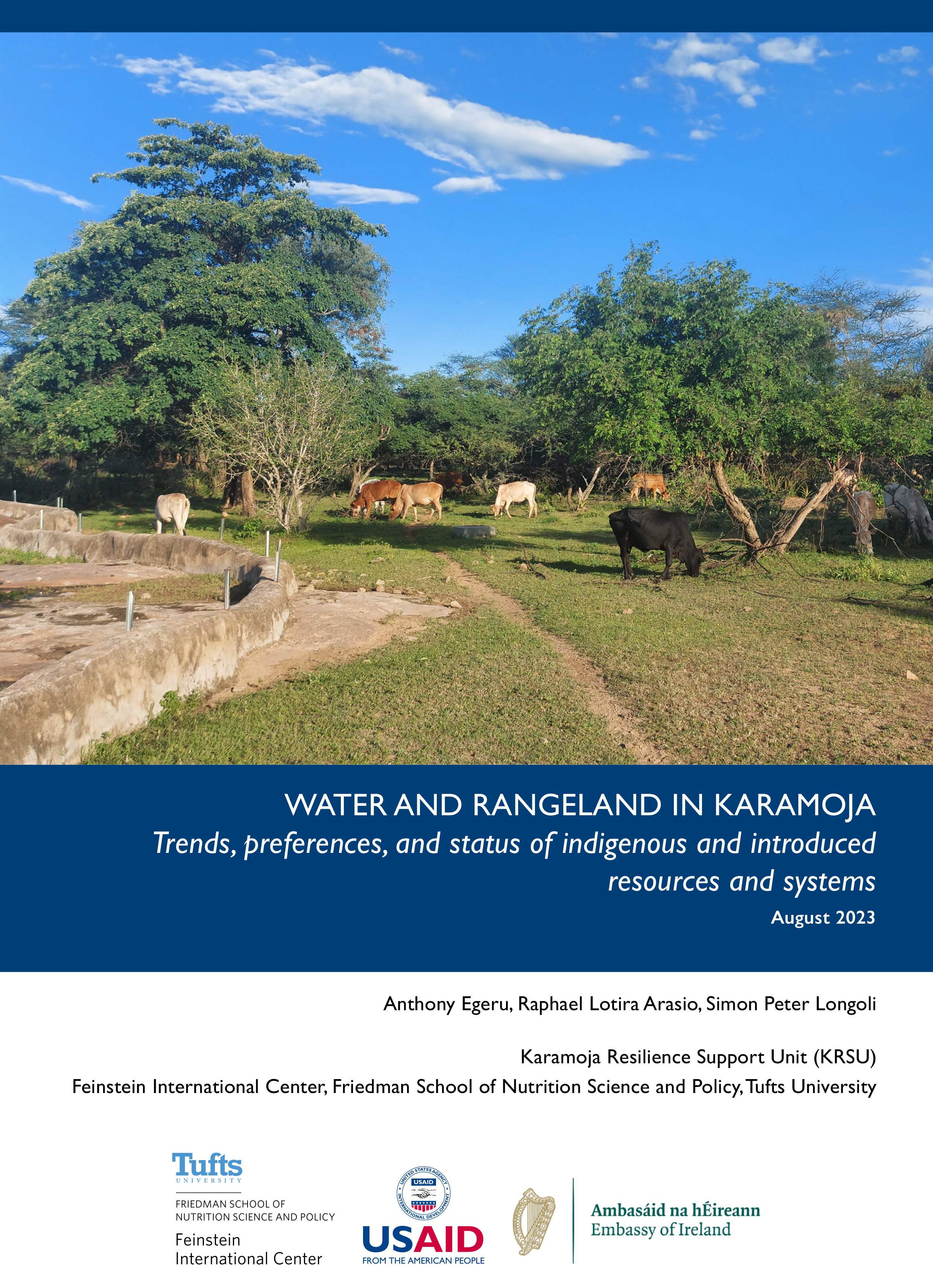
WATER AND RANGELAND IN KARAMOJA
Water and rangeland resources are the basis for livestock production in pastoralist areas of Africa and therefore have major impacts on pastoral livelihoods. Households with insufficient access to water or productive rangeland experience suboptimal herd growth and production, with associated negative impacts on the income and nutritious foods that livestock provide.
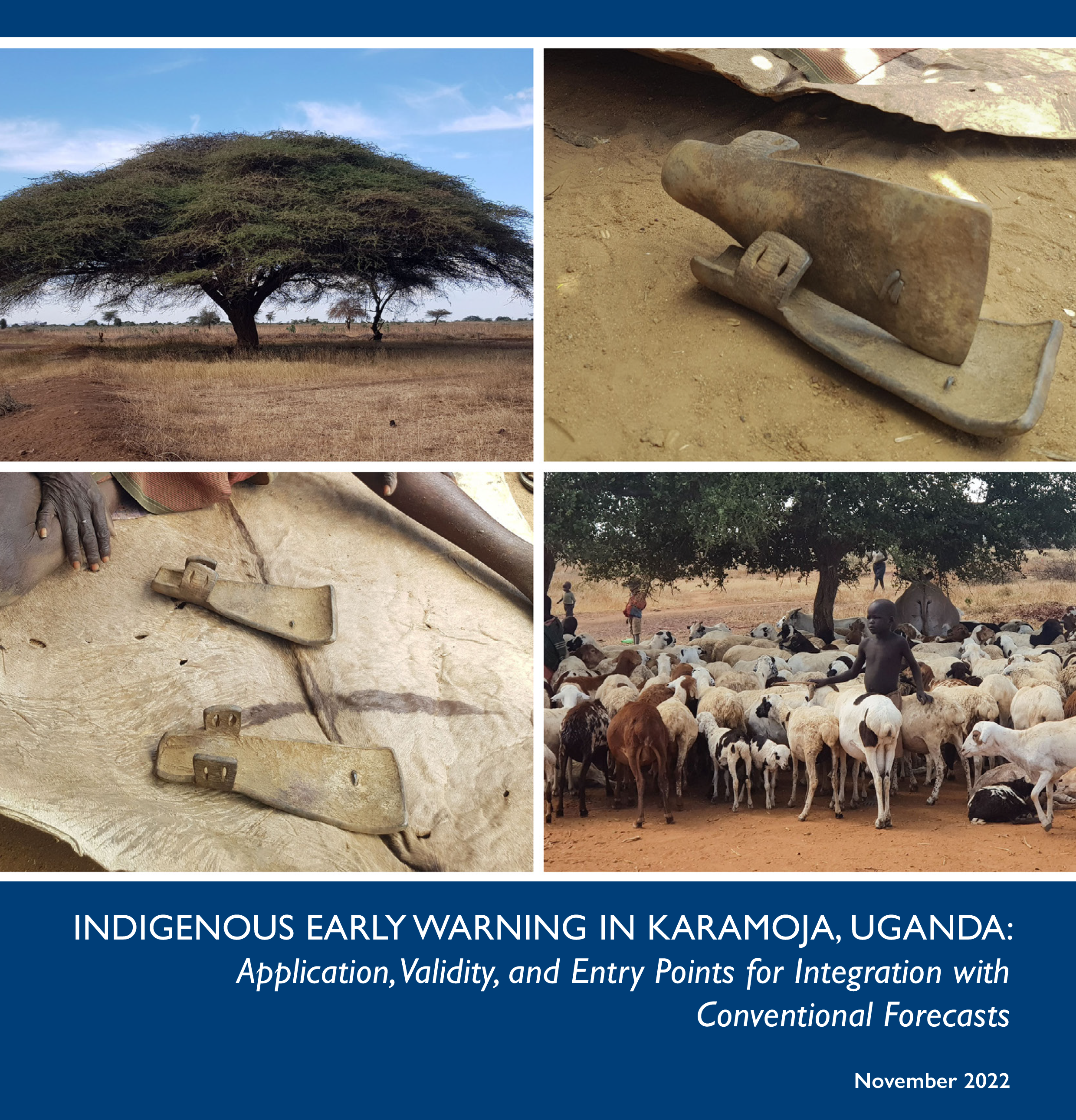
INDIGENOUS EARLY WARNING IN KARAMOJA, UGANDA
An effective early warning system (EWS) is a prerequisite for timely response to avert and mitigate the impacts of disasters that affect pastoralist and agro-pastoralist communities. Whereas there exist various forms of EWS in Uganda, the main concerns have been whether the early warning information is timely, accurate, accessible, and elicits early action. These questions point at inefficiencies in the conventional EWS in the country and the importance of the indigenous early warning system (IEWS) used by rural communities. These indigenous systems are especially important where conventional early warning information is inaccessible or coarse and therefore not suitable for guiding location-specific decisions.
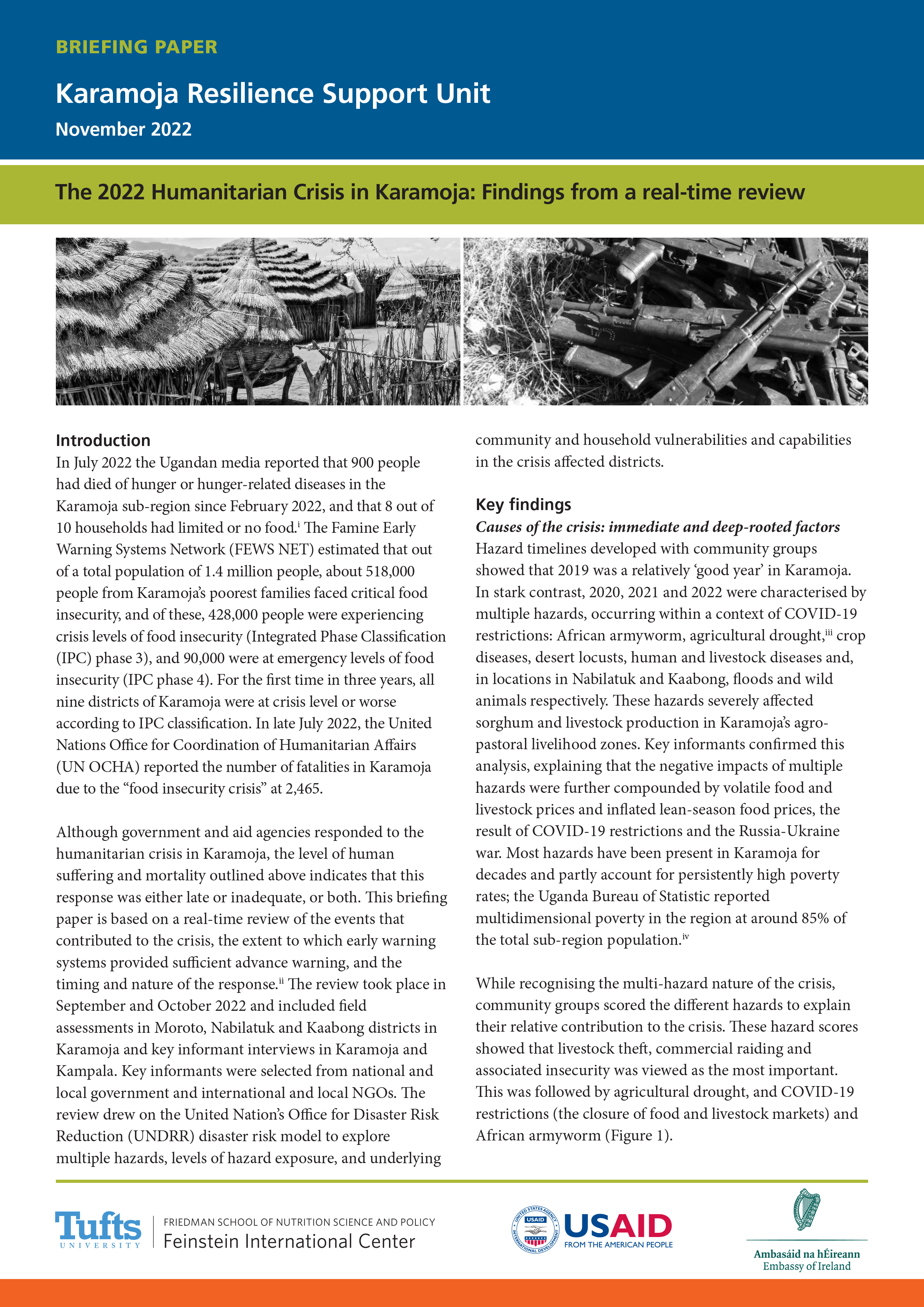
The 2022 Humanitarian Crisis in Karamoja: Findings from a real-time review
In July 2022 the Ugandan media reported that 900 people had died of hunger or hunger-related diseases in the Karamoja sub-region since February 2022, and that 8 out of 10 households had limited or no food.i
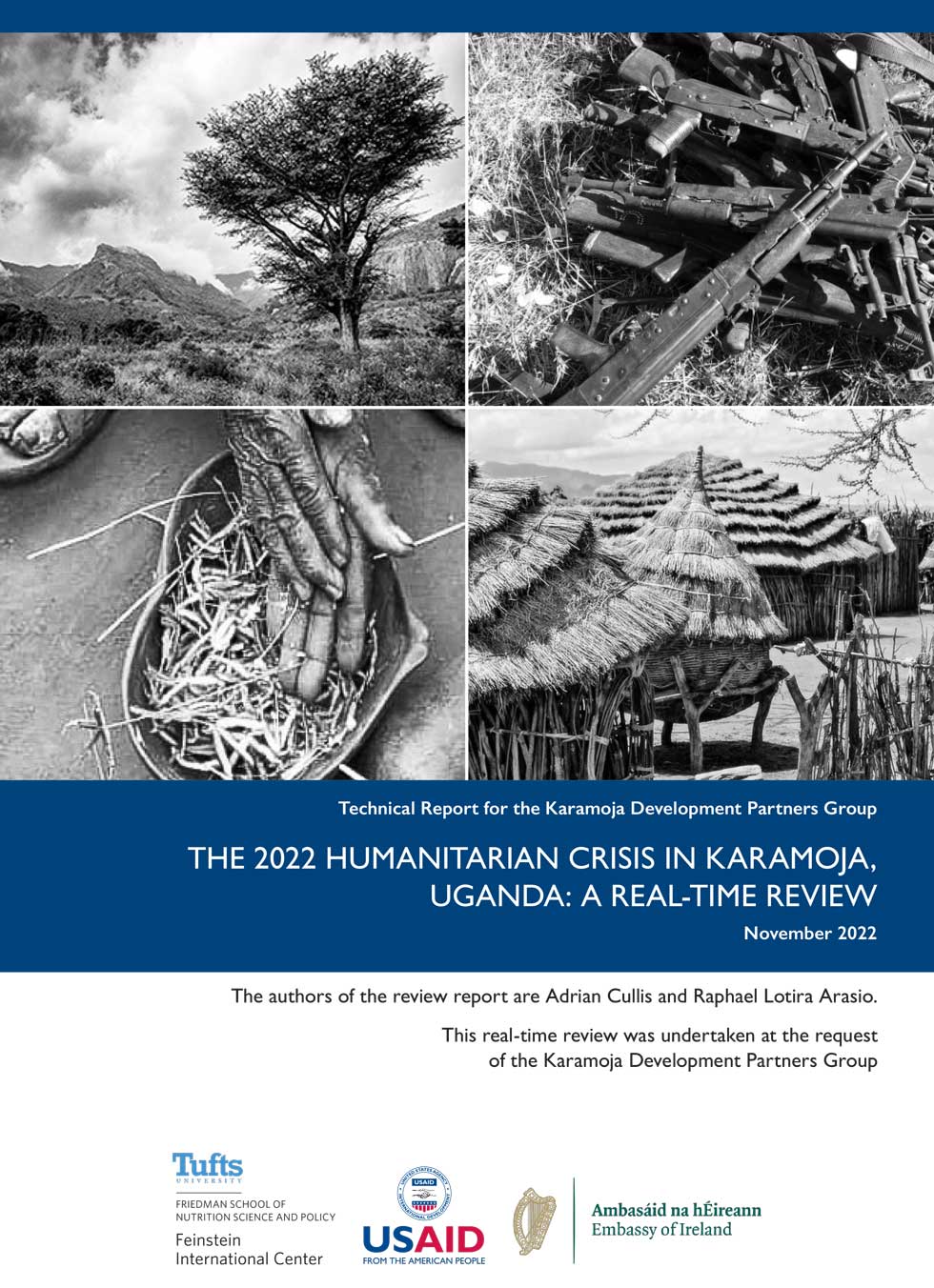
The 2022 Humanitarian Crisis in Karamoja, Uganda: A real-time review
This real-time review aims to document the events that led to Karamoja’s hunger crisis in 2022, the reporting of the worsening situation by early warning systems, and the responses of the Government of Uganda and the international aid community. The review took place from the September 27–October 21, 2022.
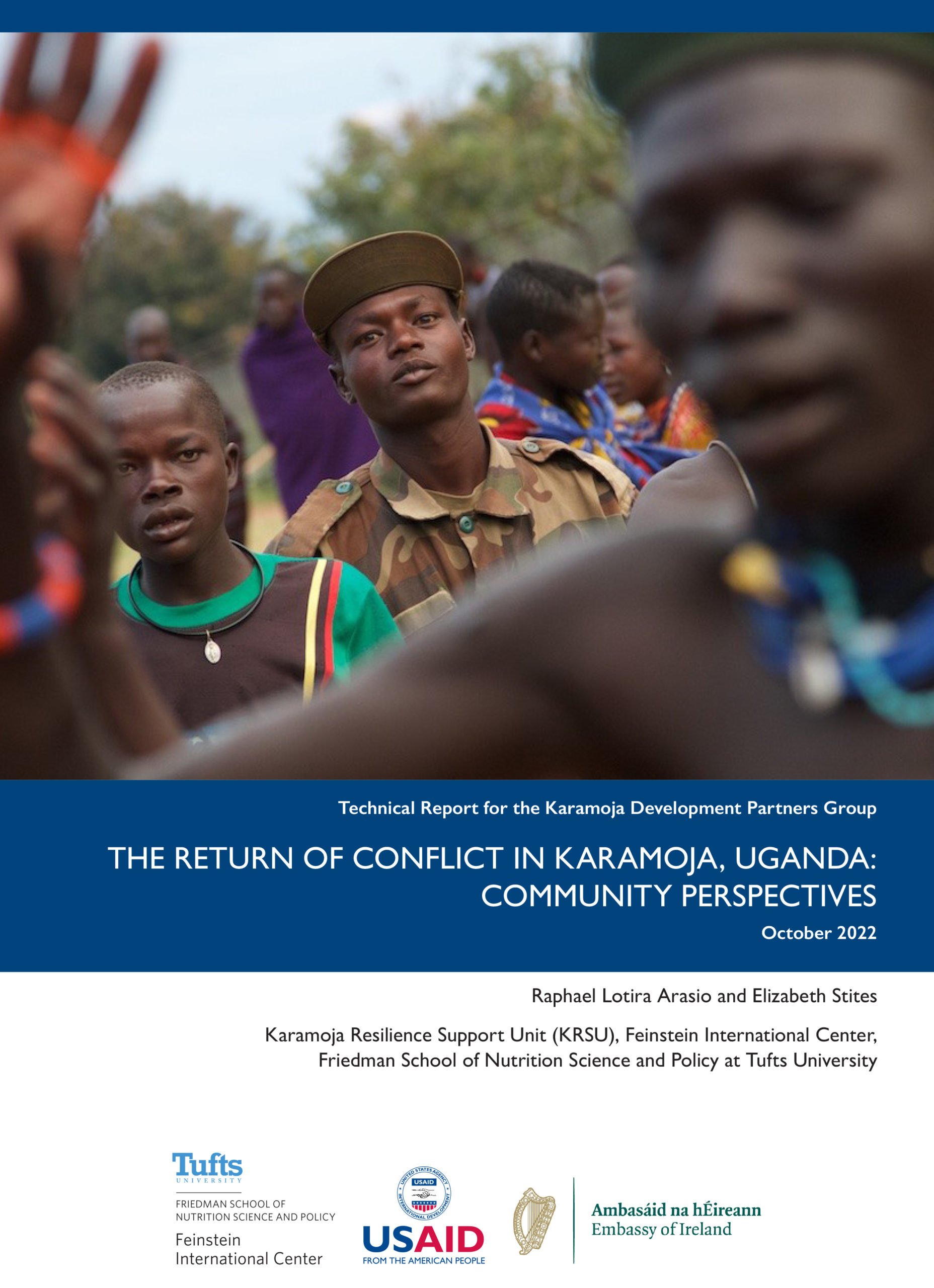
The Return of Conflict in Karamoja, Uganda: Community Perspectives
After nearly 10 years of relative peace, conflict and insecurity returned to the Karamoja sub-region of northeastern Uganda starting in 2019. This assessment investigates this resumption of conflict and insecurity from the perspective of the communities most involved and affected.
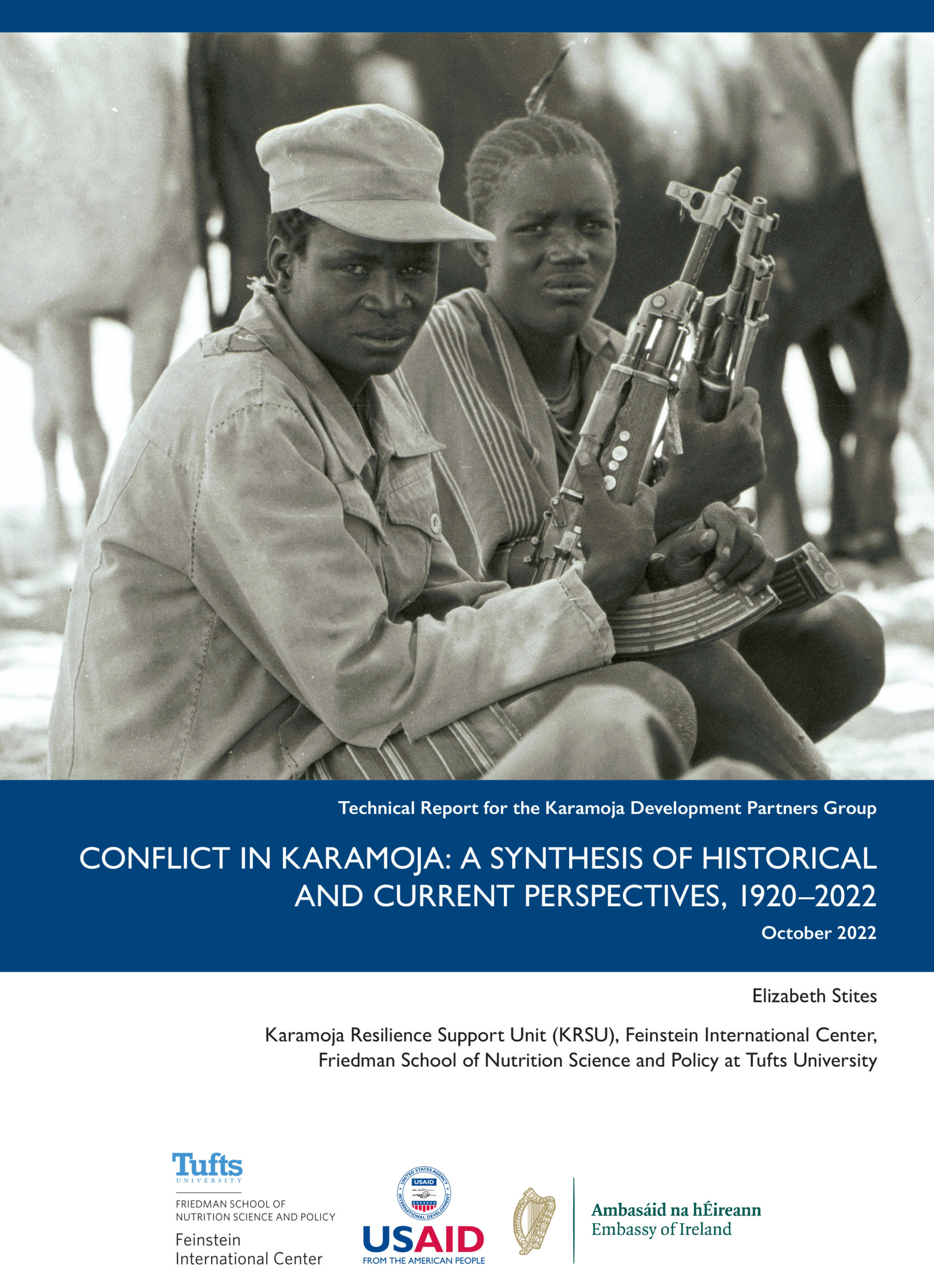
Conflict in Karamoja: A Synthesis of Historical and Current Perspectives, 1920-2022
This knowledge synthesis focuses on violent conflict in the Karamoja sub-region of northeastern Uganda. While violence and conflict both can and do take many forms, this synthesis takes as its focus the phenomenon of cattle raiding and associated violence. This knowledge synthesis briefly describes the concept and role of cattle raiding within pastoral societies in East Africa and the Karamoja Cluster and then examines different historical periods and experiences of violent conflict associated with cattle raiding within the Karamoja sub-region.
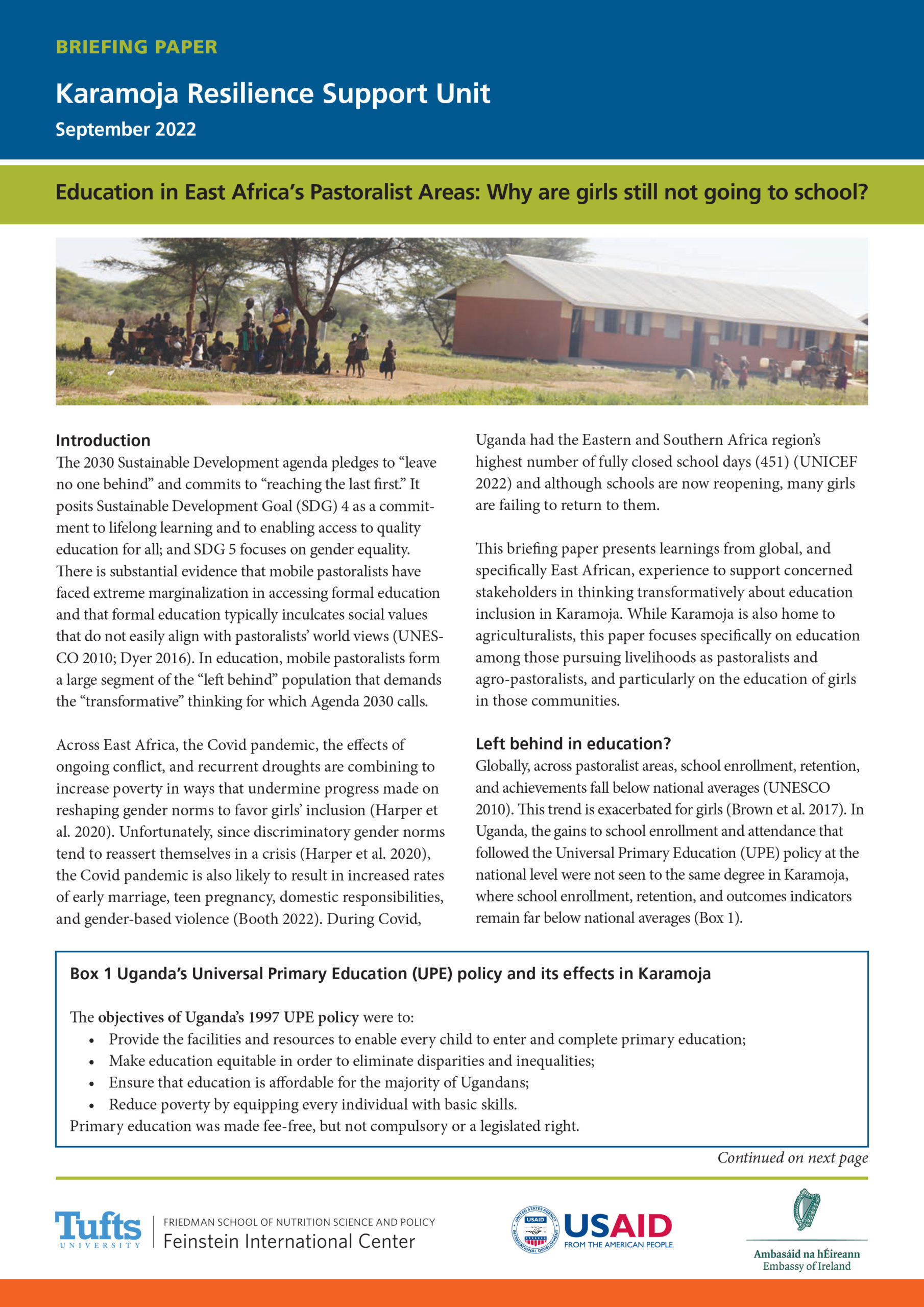
Education in East Africa’s Pastoralist Areas: Why are girls still not going to school?
This briefing paper presents learnings from global, and specifically East African, experience to support concerned stakeholders in thinking transformatively about education inclusion in Karamoja. While Karamoja is also home to agriculturalists, this paper focuses specifically on education among those pursuing livelihoods as pastoralists and agro-pastoralists, and particularly on the education of girls in those communities.
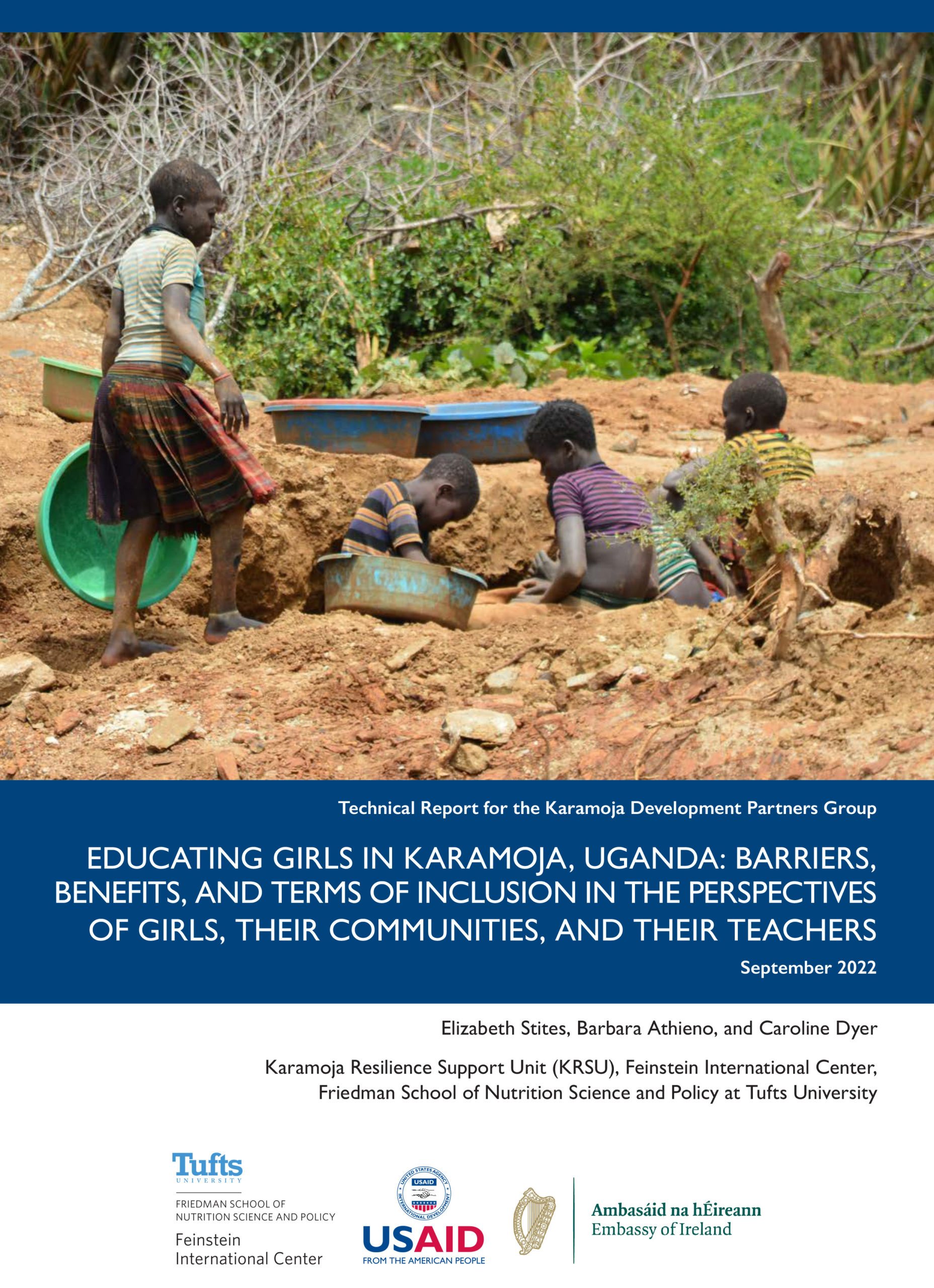
Educating Girls in Karamoja, Uganda: Barriers, Benefits, and Terms of Inclusion in the Perspectives of Girls, their Communities, and their Teachers
This scoping report investigates barriers, benefits, and “terms of inclusion” for girls’ education in the Karamoja sub-region of Uganda. Karamoja has some of the lowest education indicators in the country, with females generally faring much worse than males. The report examines the experiences and perceptions of girls, male and female community members, and teachers about girls’ education in the region, drawing on an assessment that took place from June to August 2022 in 10 sites in four districts: Amudat, Kaabong, Moroto, and Napak.
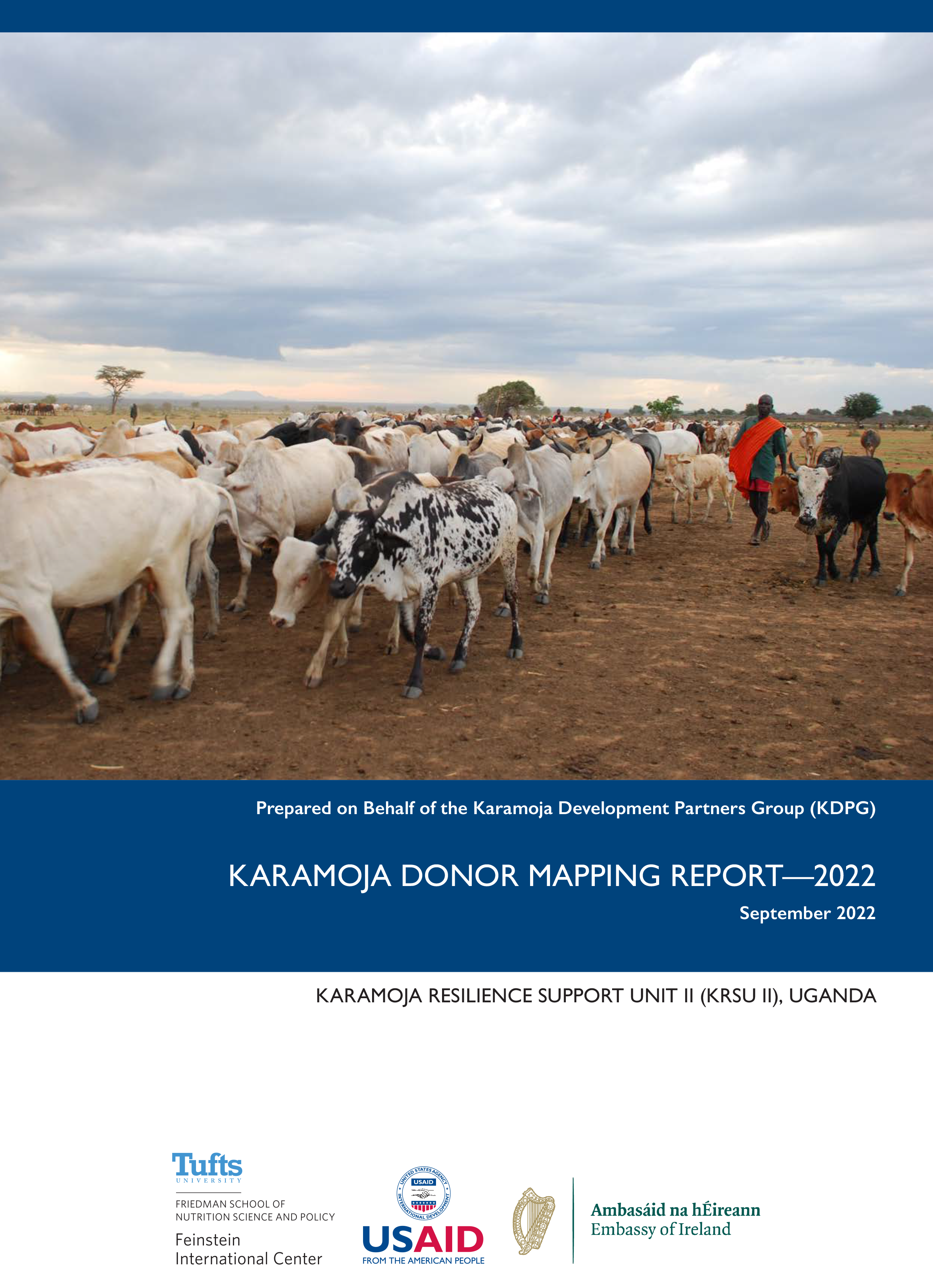
Karamoja Donor Mapping Report
This report summarizes planned humanitarian and development activities of major donors in the Karamoja sub-region
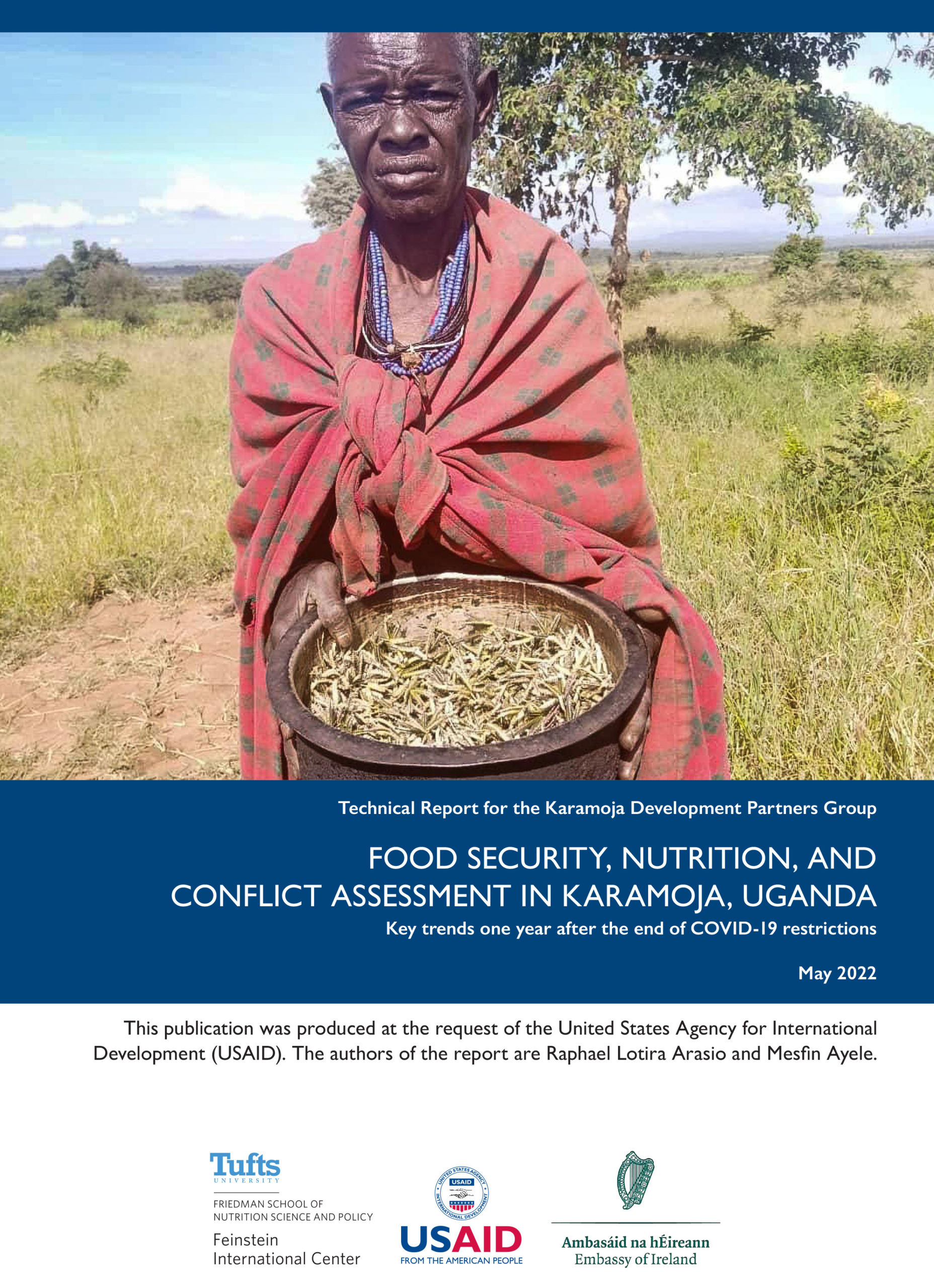
Food Security, Nutrition, and Conflict Assessment in Karamoja, Uganda
In mid-2020, the Karamoja Resilience Support Unit (KRSU) conducted a rapid assessment that described the impact of COVID-19 containment measures on rural livelihoods in Karamoja (Arasio et al. 20201). The assessment also forecast how disease restrictions would affect livelihoods over the following six to eight months (into early 2021). The initial assessment examined household wellbeing during COVID-19 relative to a normal (good) and bad (drought) year in Karamoja’s three main livelihood zones, represented by Amudat District (predominantly pastoralist but with some emerging crop production), Moroto District (predominantly agropastoralist), and Abim District (with high dependence on crop production, but also using livestock).

Improving practice: enhancing pastoralism policy
Although extensive research has been conducted into pastoralism, the sector – from its actors and systems to economic and environmental impacts – remains largely misunderstood. This is exacerbated by the fact that those living and working in pastoral communities often have trouble effectively expressing the processes they engage in and the benefits of pastoralism.
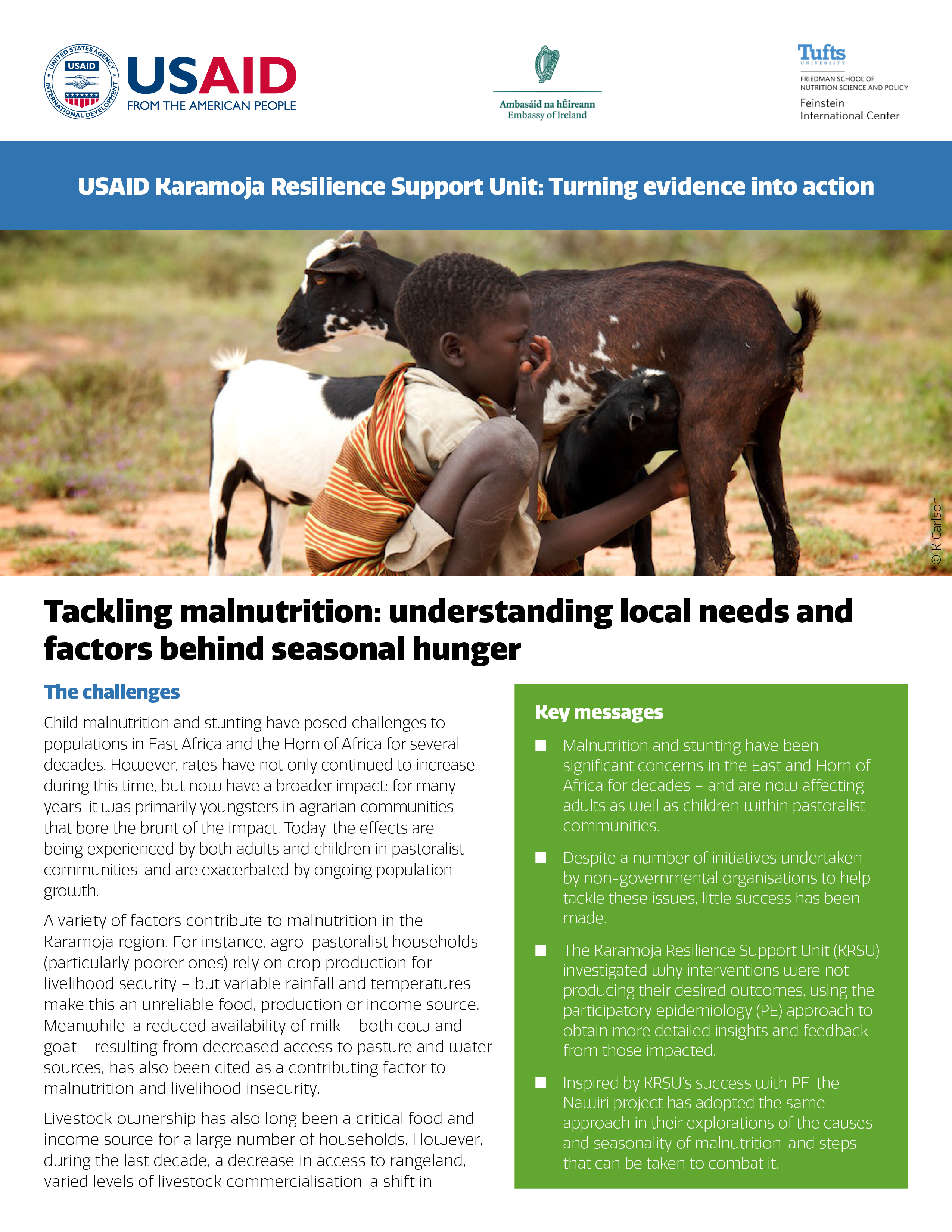
Tackling malnutrition: understanding local needs and factors behind seasonal hunger
Child malnutrition and stunting have posed challenges to populations in East Africa and the Horn of Africa for several decades. However, rates have not only continued to increase during this time, but now have a broader impact: for many years, it was primarily youngsters in agrarian communities that bore the brunt of the impact. Today, the effects are being experienced by both adults and children in pastoralist communities, and are exacerbated by ongoing population growth.

Livestock in Karamoja: improving markets and veterinary services
As Karamoja is a predominantly a pastoralist region, market trading of livestock is key to the region’s economy. However, a number of factors – ranging from policies and seasonality to price trends and market types – prevent livestock value chain actors from maximising their income and achieving livelihood security.
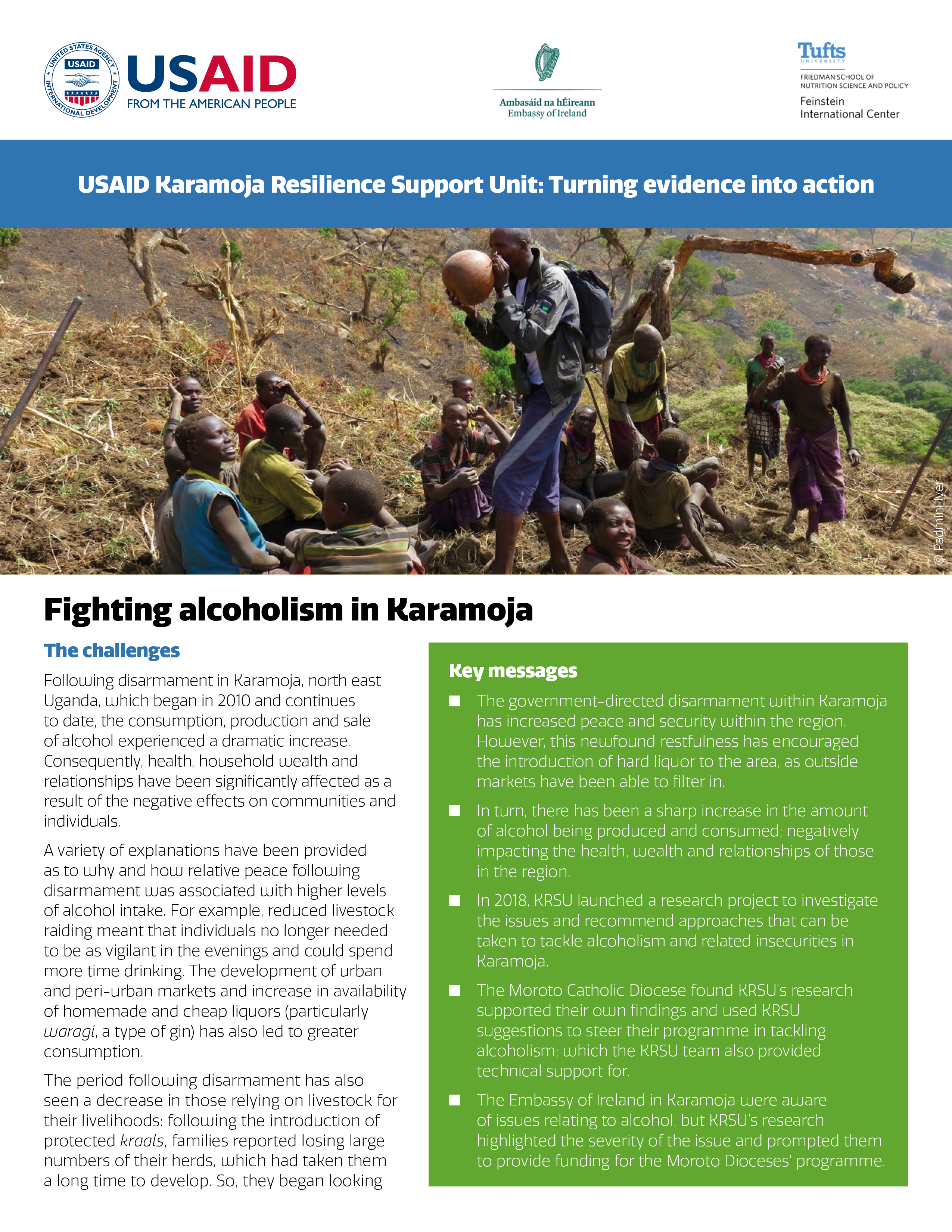
Fighting alcoholism in Karamoja
Following disarmament in Karamoja, north east Uganda, which began in 2010 and continues to date, the consumption, production and sale of alcohol experienced a dramatic increase. Consequently, health, household wealth and relationships have been significantly affected as a result of the negative effects on communities and individuals.
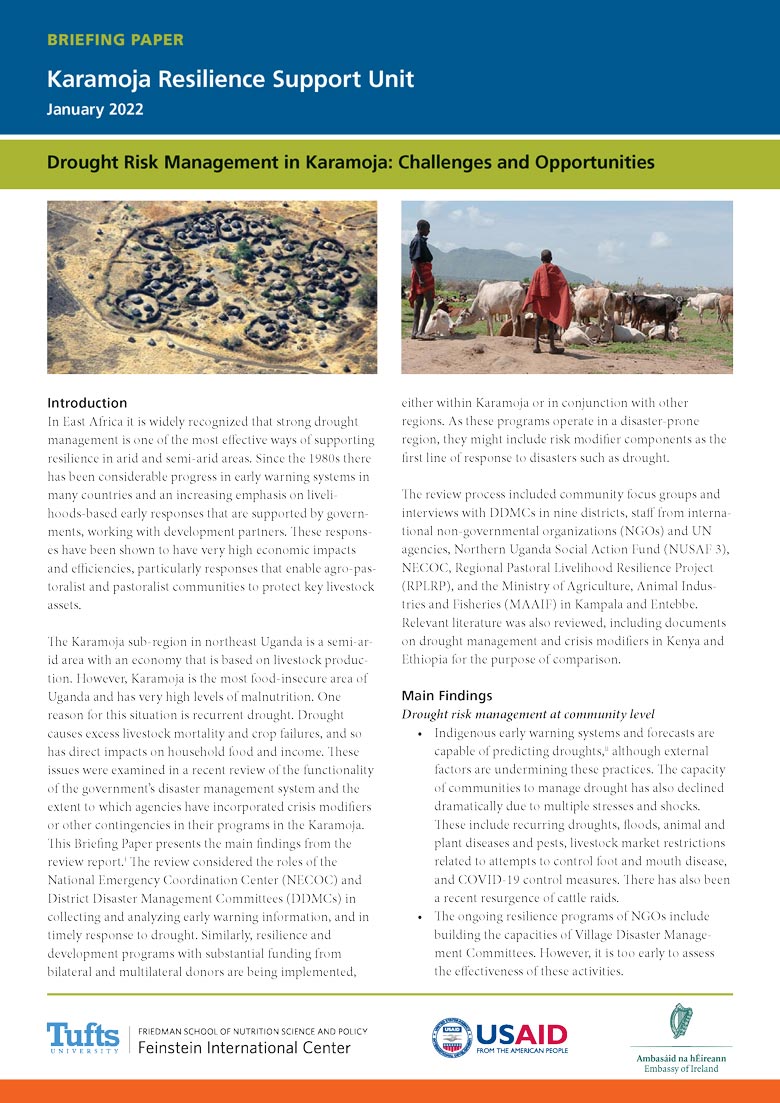
Drought Risk Management in Karamoja: Challenges and Opportunities
This Briefing Paper presents the main findings from the review report. The review considered the roles of the National Emergency Coordination Center (NECOC) and District Disaster Management Committees (DDMCs) in collecting and analyzing early warning information, and in timely response to drought.
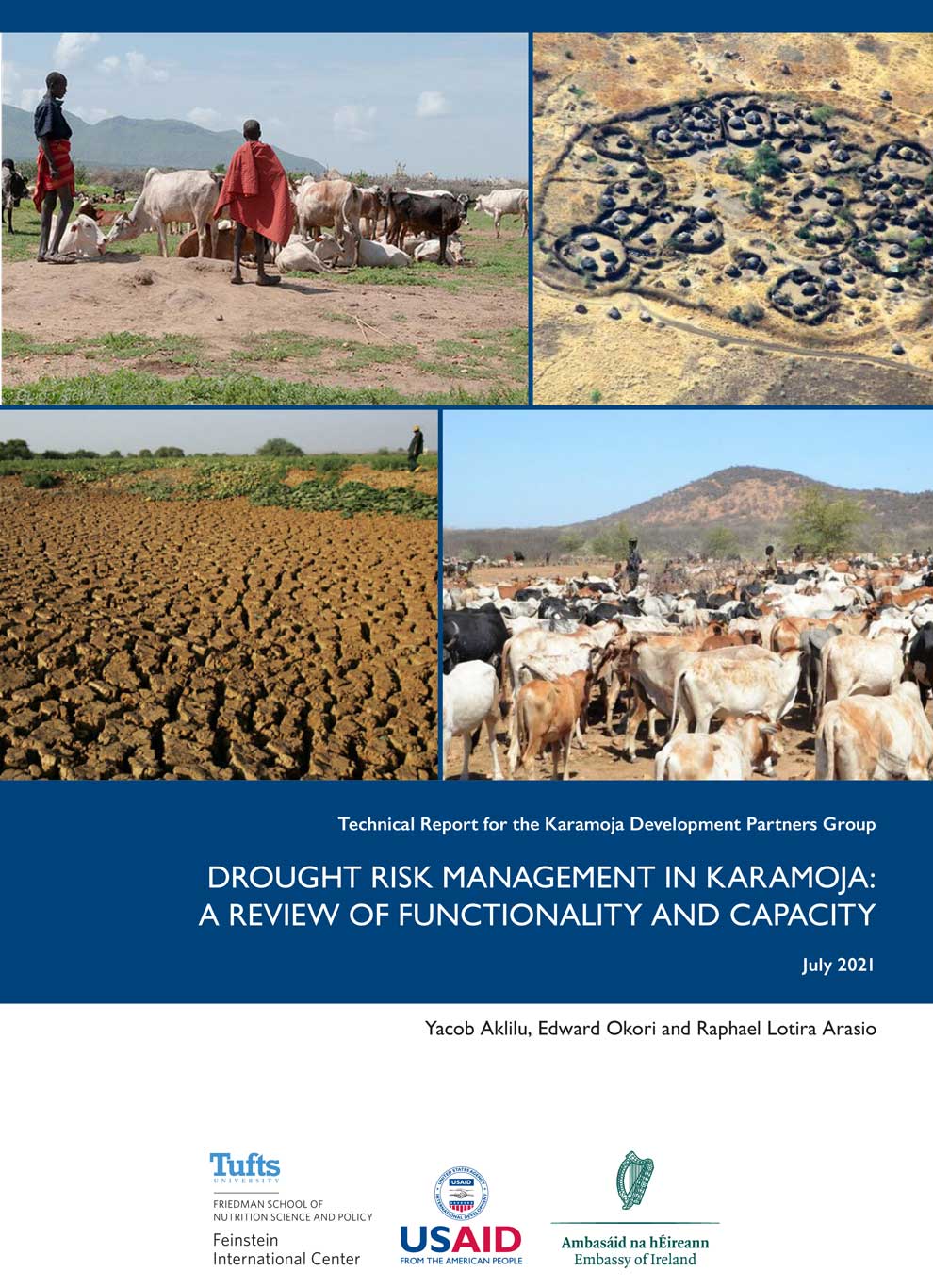
Drought Risk Management in Karamoja: A Review of Functionality and Capacity
In the history of Karamoja, drought has been one of the most important types of disaster, with major impacts on livelihoods. For livestock-owning households, drought can push both wealthy and poorer households into destitution, and the recovery of herds, their main form of financial capital, takes many years. Drought also has serious impacts on crop production and can decimate harvests. In the case of livestock interventions, there have been notable developments in effective drought response in many countries in the wider East Africa region, including novel partnerships between government, non-governmental organizations (NGOs) and private sector to provide early and more cost-effective programming.
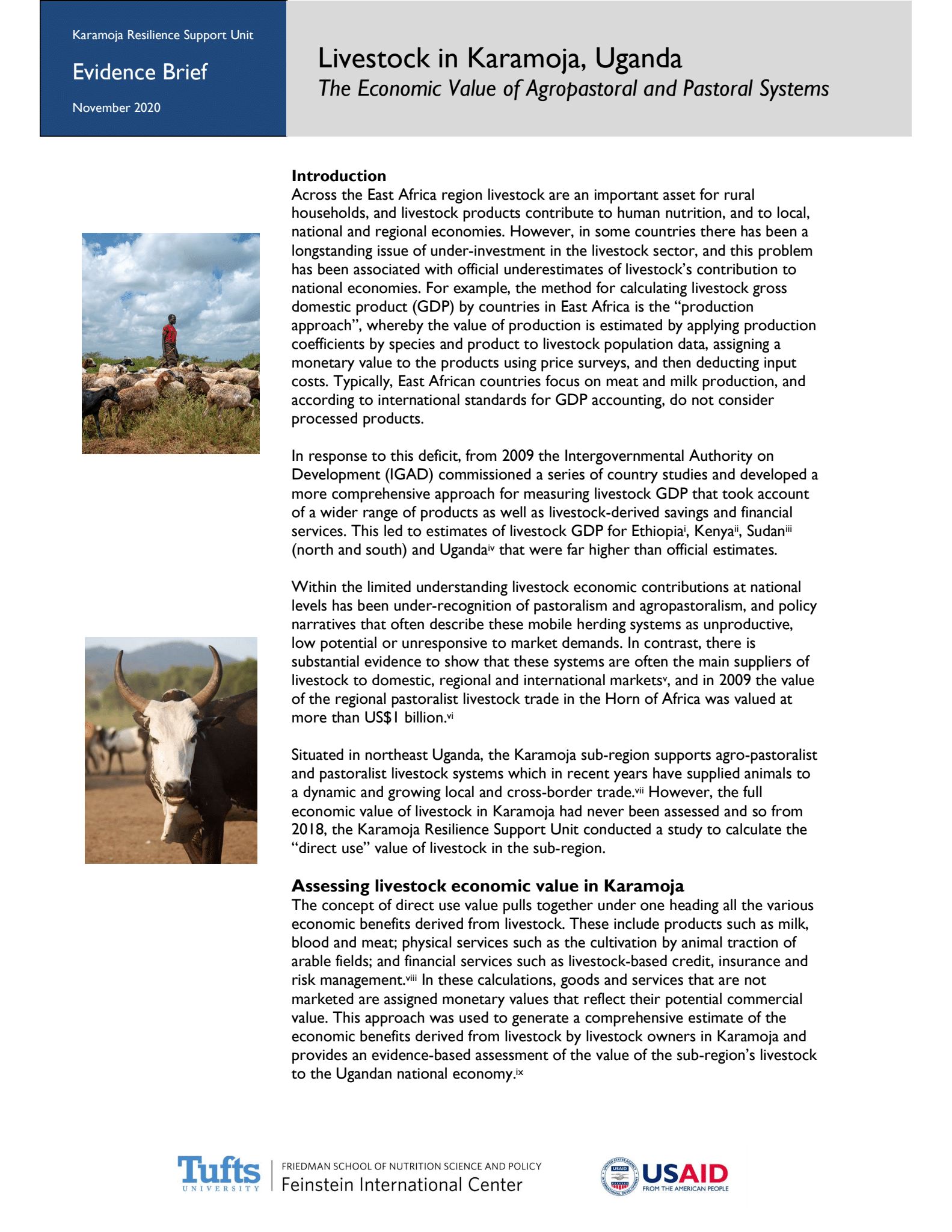
Livestock in Karamoja, Uganda- The Economic Value of Agropastoral and Pastoral Systems
Across the East Africa region livestock are an important asset for rural households, and livestock products contribute to human nutrition, and to local, national and regional economies. However, in some countries there has been a longstanding issue of under-investment in the livestock sector, and this problem has been associated with official underestimates of livestock’s contribution to national economies.
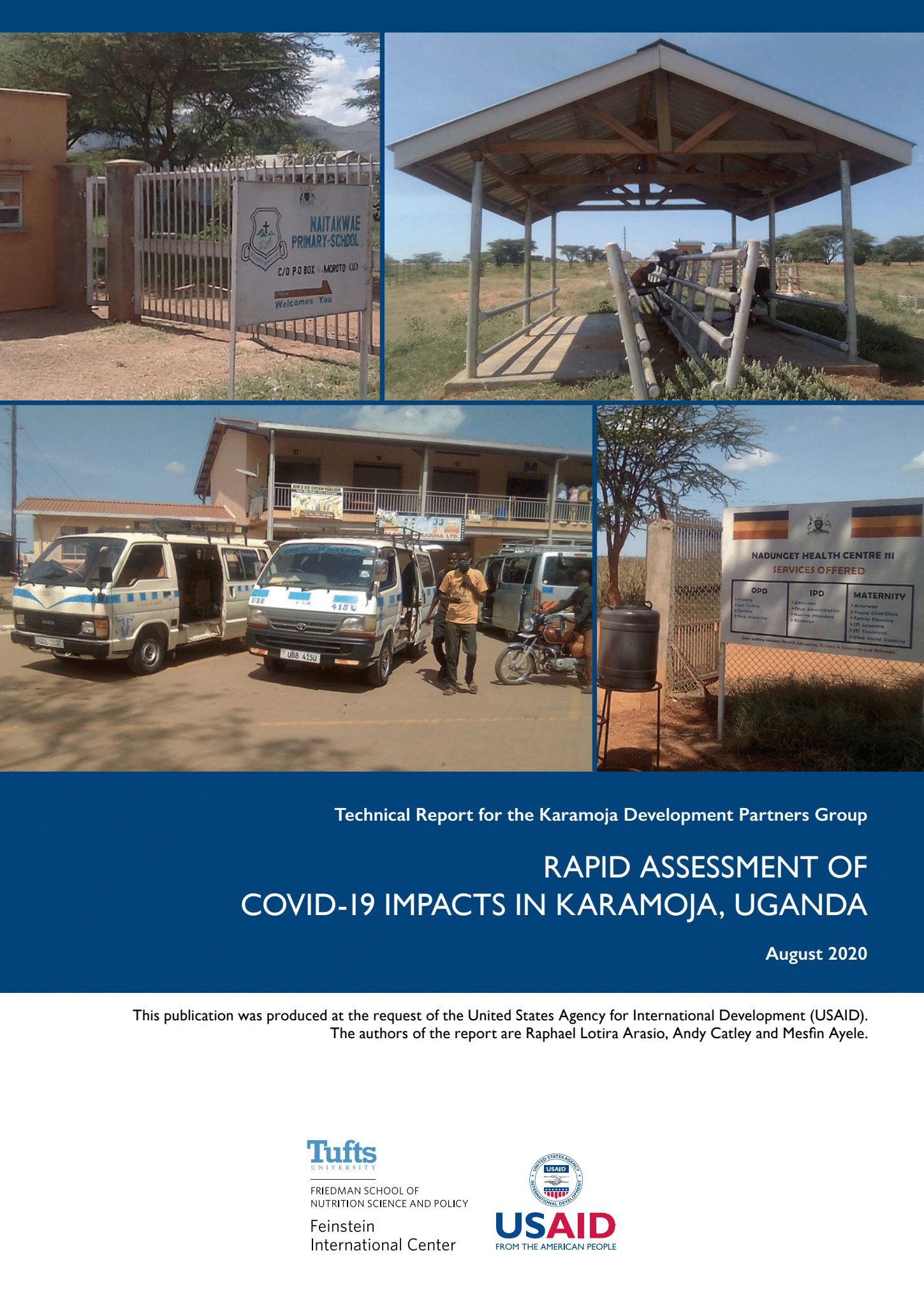
RAPID ASSESSMENT OF COVID-19 IMPACTS IN KARAMOJA, UGANDA
This technical report describes the impacts of coronavirus disease 2019 (COVID-19) restrictions in the Karamoja sub-region of Uganda, based on field assessments in Amudat, Moroto and Abim Districts. The COVID-19 prevention guidelines that prompted total lockdown measures included market closure and travel restrictions which in turn affected the essential economic activities of many households, especially the poor.
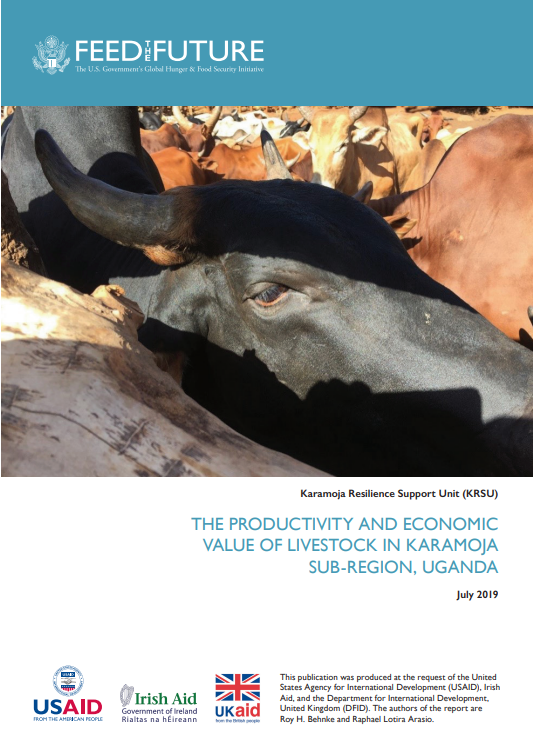
THE PRODUCTIVITY AND ECONOMIC VALUE OF LIVESTOCK IN KARAMOJA SUB-REGION, UGANDA
This report calculates the direct use value of livestock in Karamoja Sub-region, Uganda. The concept of direct use value pulls together under one heading all the various economic benefits derived from livestock.
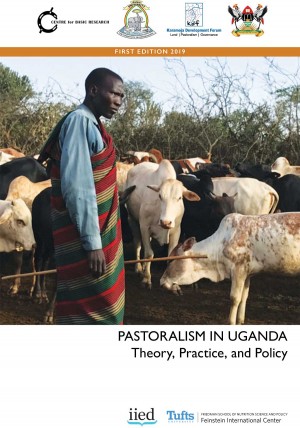
Pastoralism in Uganda Theory, Practice, and Policy
This textbook is a general reference on pastoralism theory, practice, and policy. It enables students and other readers from various professional backgrounds to understand how pastoralism functions as a system, its contributions to local, national, regional, and global economies and sustainable environmental management, and its role in promoting peace and harmony between pastoral and other communities.
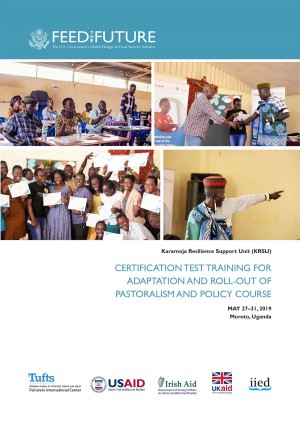
Certification Test Training For Adaptation and Roll-out of Pastoralism and Policy Course
The Karamoja Resilience Support Unit (KRSU), in partnership with the International Institute for Environment and Development (IIED), commissioned the adaptation and roll-out of the East African Pastoralism and Policy Course (PPC) and has completed the final training of trainers (ToT) course.
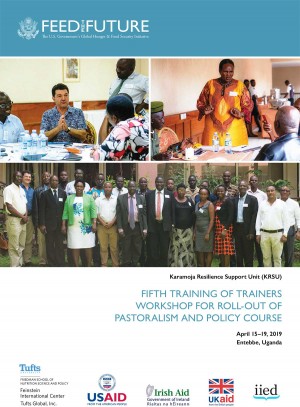
Fifth Training of Trainers Workshop for Roll-out of Pastoralism and Policy Course
The Karamoja Resilience Support Unit (KRSU), in partnership with the International Institute for Environment and Development (IIED), commissioned the adaptation and roll-out of the East African Pastoralism and Policy Course (PPC) and has completed the final training of trainer’s (ToT) course.
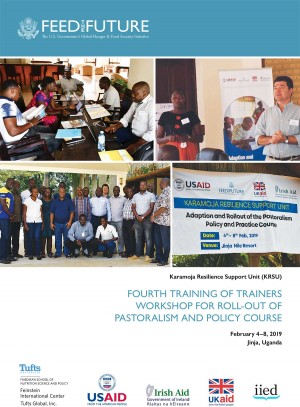
Fourth Training of Trainers Workshop for Roll-out of Pastoralism and Policy Course
The Karamoja Resilience Support Unit (KRSU), in partnership with the International Institute for Environment and Development (IIED), commissioned the adaptation and roll-out of the East African Pastoralism and Policy Course (PPC) and has completed the final training of trainer’s (ToT) course.
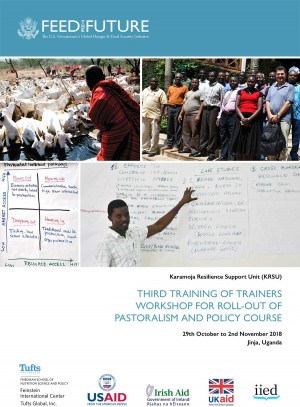
Third Training of Trainers Workshop for Roll-out of Pastoralism and Policy Course
The Karamoja Resilience Support Unit (KRSU), in partnership with the International Institute for Environment and Development (IIED), commissioned the adaptation and roll-out of the East African Pastoralism and Policy Course (PPC) and has completed the final training of trainer’s (ToT) course.
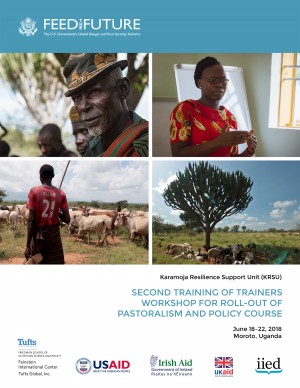
Second Training of Trainers Workshop for Roll-out of Pastoralism and Policy Course
The Karamoja Resilience Support Unit (KRSU), in partnership with the International Institute for Environment and Development (IIED), commissioned the adaptation and roll-out of the East African Pastoralism and Policy Course (PPC) and has completed the final training of trainer’s (ToT) course.
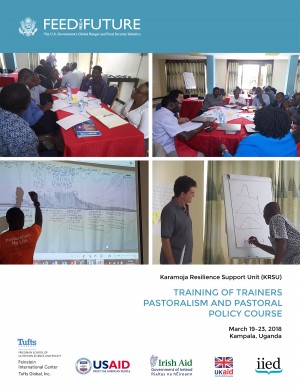
Training of Trainers Pastoralism and Pastoral Policy Course (One)
The Karamoja Resilience Support Unit (KRSU), in partnership with the International Institute for Environment and Development (IIED), commissioned the adaptation and roll-out of the East African Pastoralism and Policy Course (PPC) and has completed the final training of trainer’s (ToT) course.
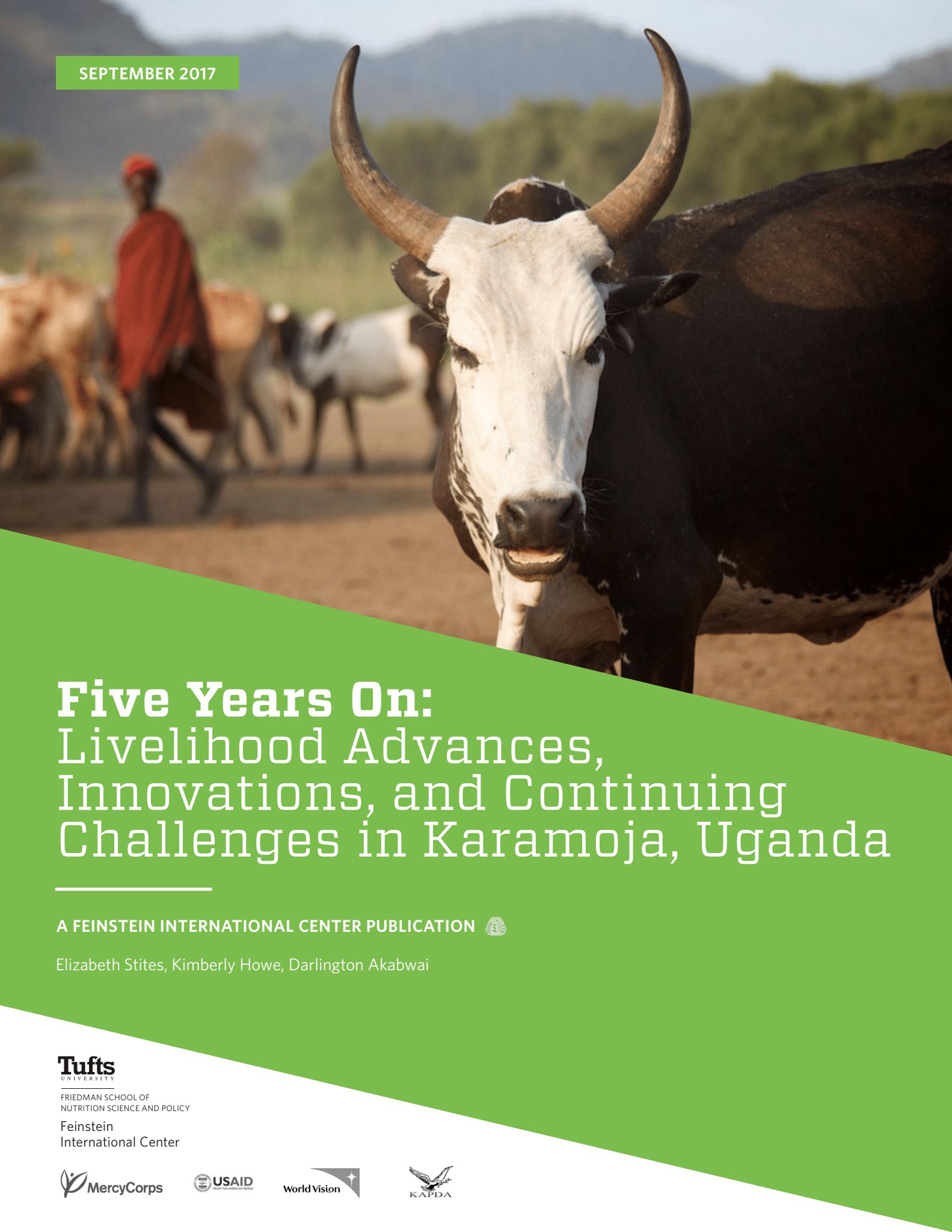
Five Years On: Livelihood Advances, Innovations, and Continuing Challenges in Karamoja, Uganda
A quantitative analysis of a representative group of villages indicates that there has been a widespread increase in the utilization of services as well as improvement to well-being for residents of northern Karamoja since 2013
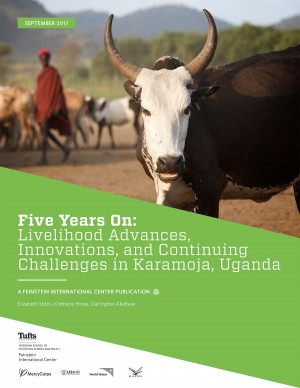
Five Years On: Livelihood Advances, Innovations, and Continuing Challenges in Karamoja, Uganda
The report is part of an evaluation of the Growth, Health and Governance Program, that measures changes in product service utilization and livelihood development and pragmatic innovations in Karamoja region.
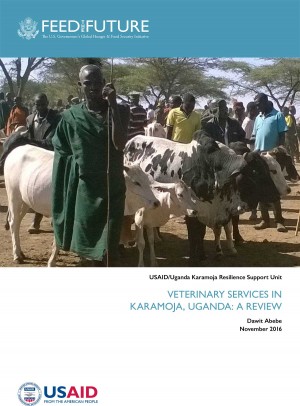
Veterinary Services in Karamoja, Uganda: A Review
The KRSU has recently completed a comprehensive review of veterinary services in Karamoja. The review covers all aspects of public and private sector service delivery, and reports the persistent high impacts of livestock diseases on livelihoods. The review recommendations include the need for stronger coordination of veterinary projects and programs, better support to community-based systems, and improving linkages between private veterinary pharmacies and community-basd animal health workers.
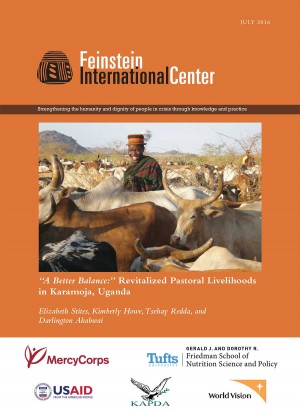
A Better Balance: Revitalized Pastoral Livelihoods in Karamoja, Uganda
Livelihoods in Karamoja continue to change as security improves; this includes a revitalization of pastoral production for some households. This report details the findings from research undertaken in February and March 2016 in four districts of Karamoja aimed at better understanding the current patterns of pastoral and agro-pastoral production in the region.
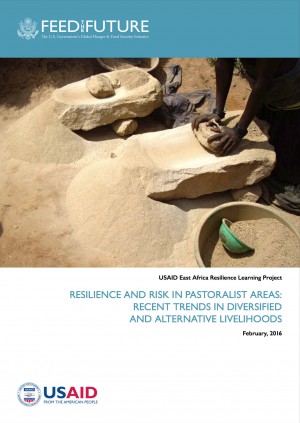
Livelihood diversification trends, risks, and programming implications
This study explored recent trends in diversification by East African pastoralists, the factors that drive their choices, and the potential short and longer-term consequences of their decisions. It considered the risks and costs of diversified and alternative livelihoods, as well as the benefits. The report presents findings from three case studies from Karamoja in northeastern Uganda, the Borana region of southern Ethiopia, and the Garissa District of northeastern Kenya. It includes policy recommendations regarding land tenure, local value addition around livestock production, and investments in sustainable natural products, local infrastructure, and urban/peri-urban planning. Further recommendations address nutritional issues, the promotion of regional trade, and growing demands for education, training, and business development skills.
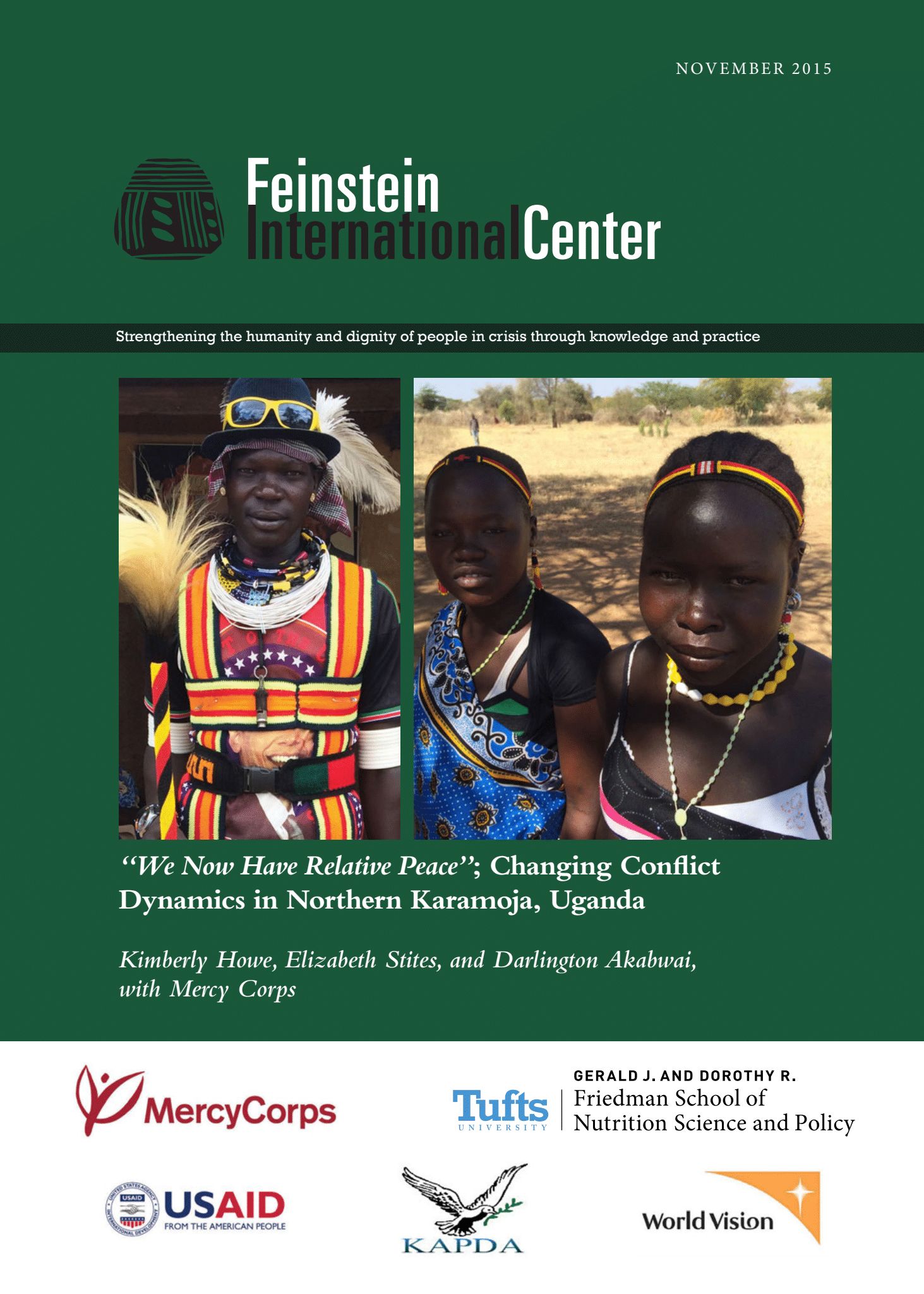
“We Now Have Relative Peace” ; Changing Conflict Dynamics in Northern Karamoja, Uganda
The objective of the study was to provide a nuanced understanding of the current threats to security at the household, community, district and regional levels, and to examine how these dynamics have changed in recent years.
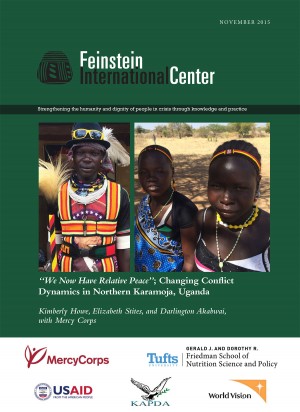
“We Now Have Relative Peace”; Changing Conflict Dynamics in Northern Karamoja, Uganda
This report reflects research from early 2015 conducted by the Feinstein International Center at the Friedman School of Tufts University and Mercy Corps in northern Karamoja, Uganda. The research examined changing conflict dynamics and related conflict mitigation and peacebuilding initiatives. The objective of the study was to provide a nuanced understanding of the current threats to security at the household, community, district and regional levels, and to examine how these dynamics have changed in recent years. The study examined conflict mitigation initiatives, including access to and efficacy of these systems.
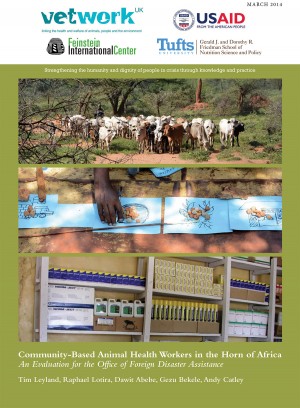
Community-Based Animal Health Workers in the Horn of Africa: An Evaluation for the Office of Foreign Disaster Assistance
Evaluation of USAID Office of Foreign Disaster Assistance (OFDA)-funded Community-Based Animal Health Worker (CAHW) programs in the Horn of Africa
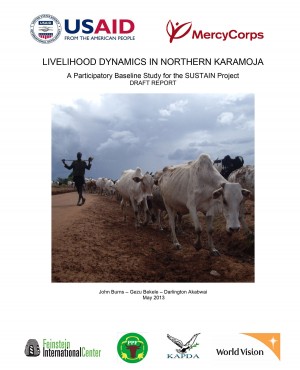
Livelihood Dynamics in Northern Karamoja: A Participatory Baseline Study for the SUSTAIN Project
This report documents the findings of a livelihoods assessment carried out as part of the USAID funded Sustainable Transformation in Agriculture and Nutrition (SUSTAIN) project being implemented by Mercy Corps and partners in the Karamoja sub-region of Northeastern Uganda. The overall goal of the SUSTAIN project is to promote peace and food security through three complementary strategic objectives aimed at (1) strengthening livelihoods, (2) improving nutritional outcomes for children under two and (3) building local capacities for conflict mitigation.The project is being implemented in three districts of Northern Karamoja, Abim, Kaabong and Kotido. The objective of this particular study is to inform implementation and collect baseline impact indicators for the activities under objective # 1. Under this objective (livelihoods strengthening)the project aims to improve productivity, market access, marketing behaviors and the overall business environment.
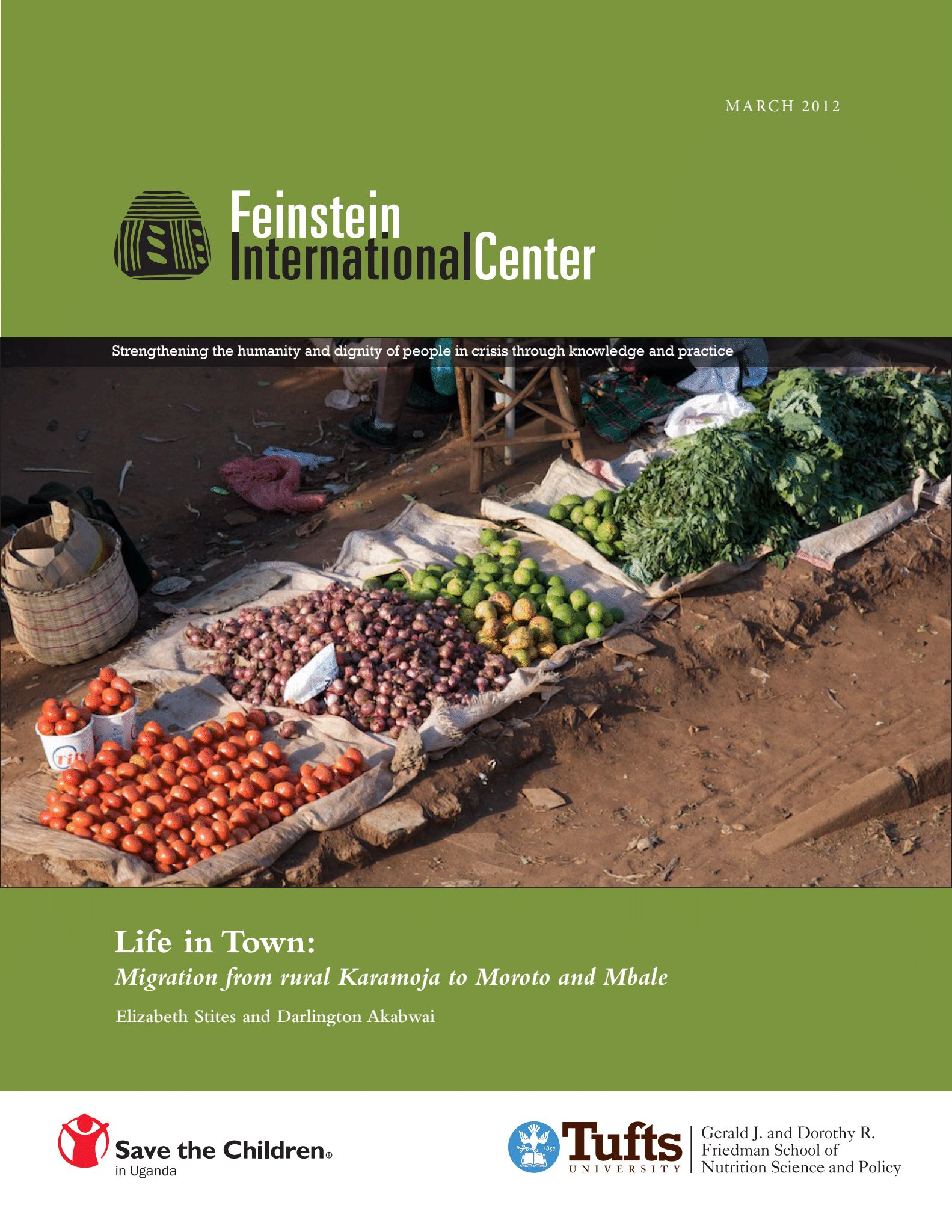
Life in Town: Migration from rural Karamoja to Moroto and Mbale
The phenomenon of out-migration from Karamoja is well known and widely discussed both by rural residents in the region and by officials in receiving cities
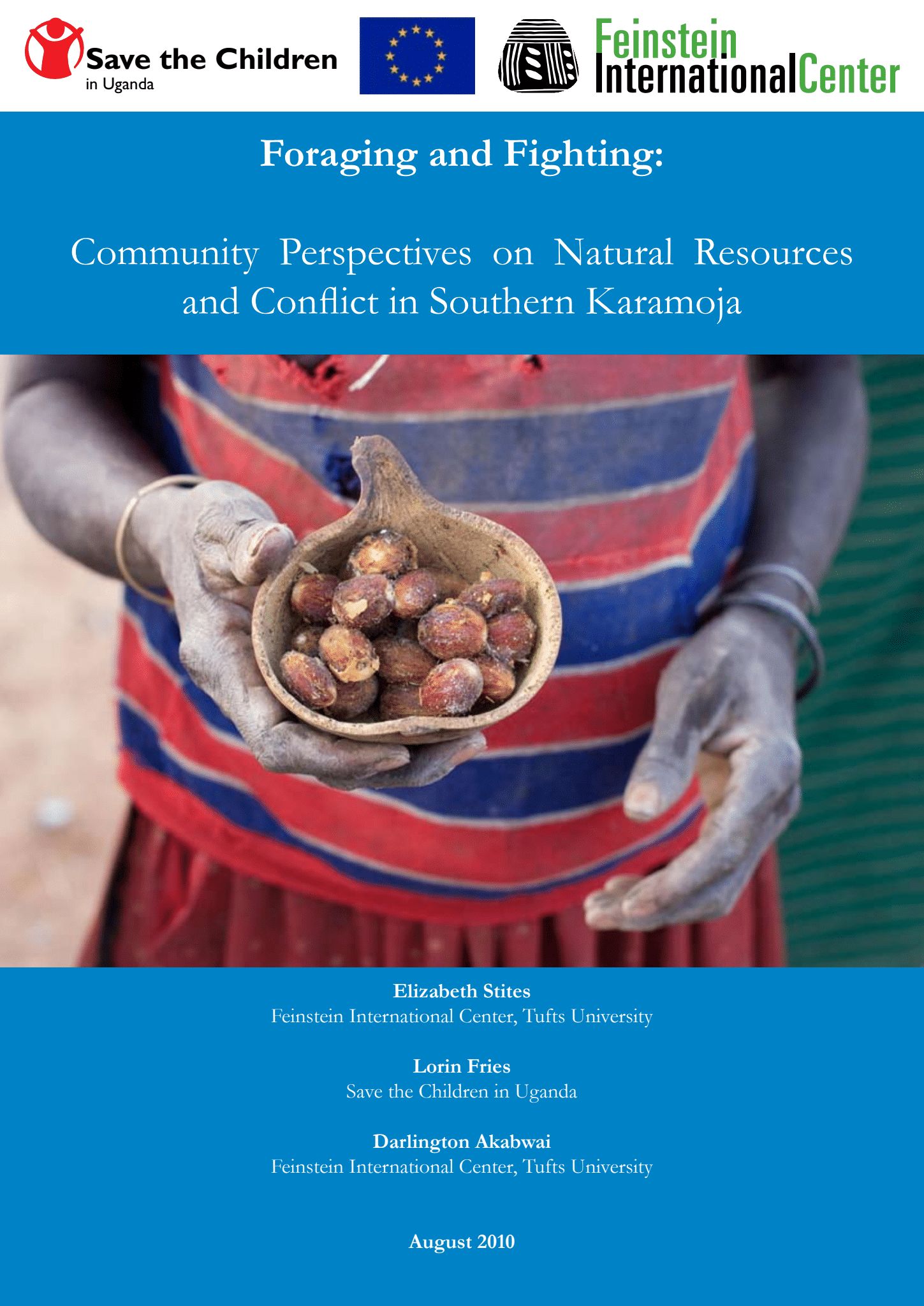
Foraging and Fighting: Community Perspectives on Natural Resources and Conflict in Southern Karamoja
In our research in Karamoja since 2005, respondents often discuss problems with natural resource access and availability, and with comparable frequency they describe conflict with neighboring or nearby groups who are also accessing natural resources.
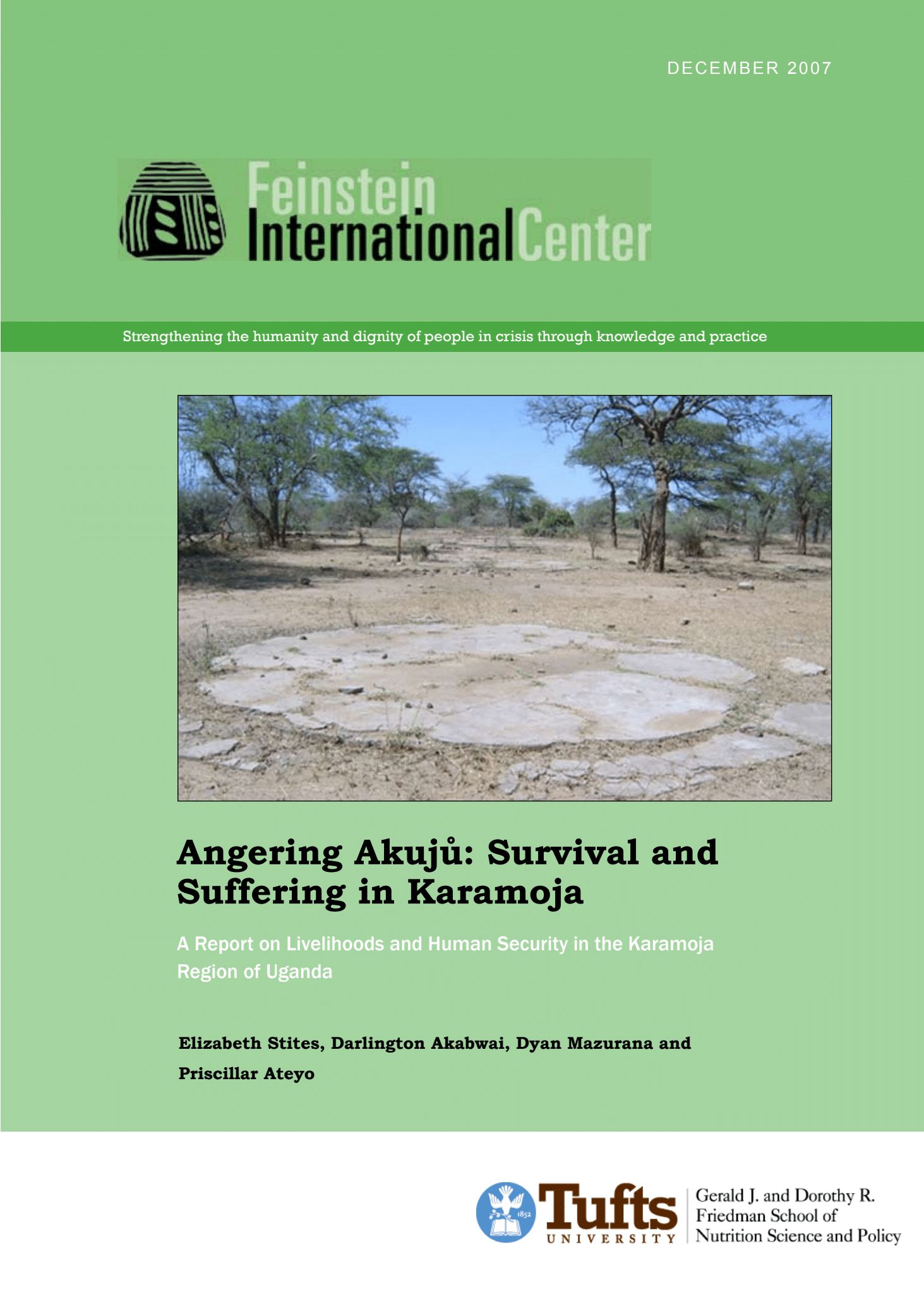
Angering Akujů: Survival and Suffering in Karamoja
A Report on Livelihoods and Human Security in the Karamoja Region of Uganda
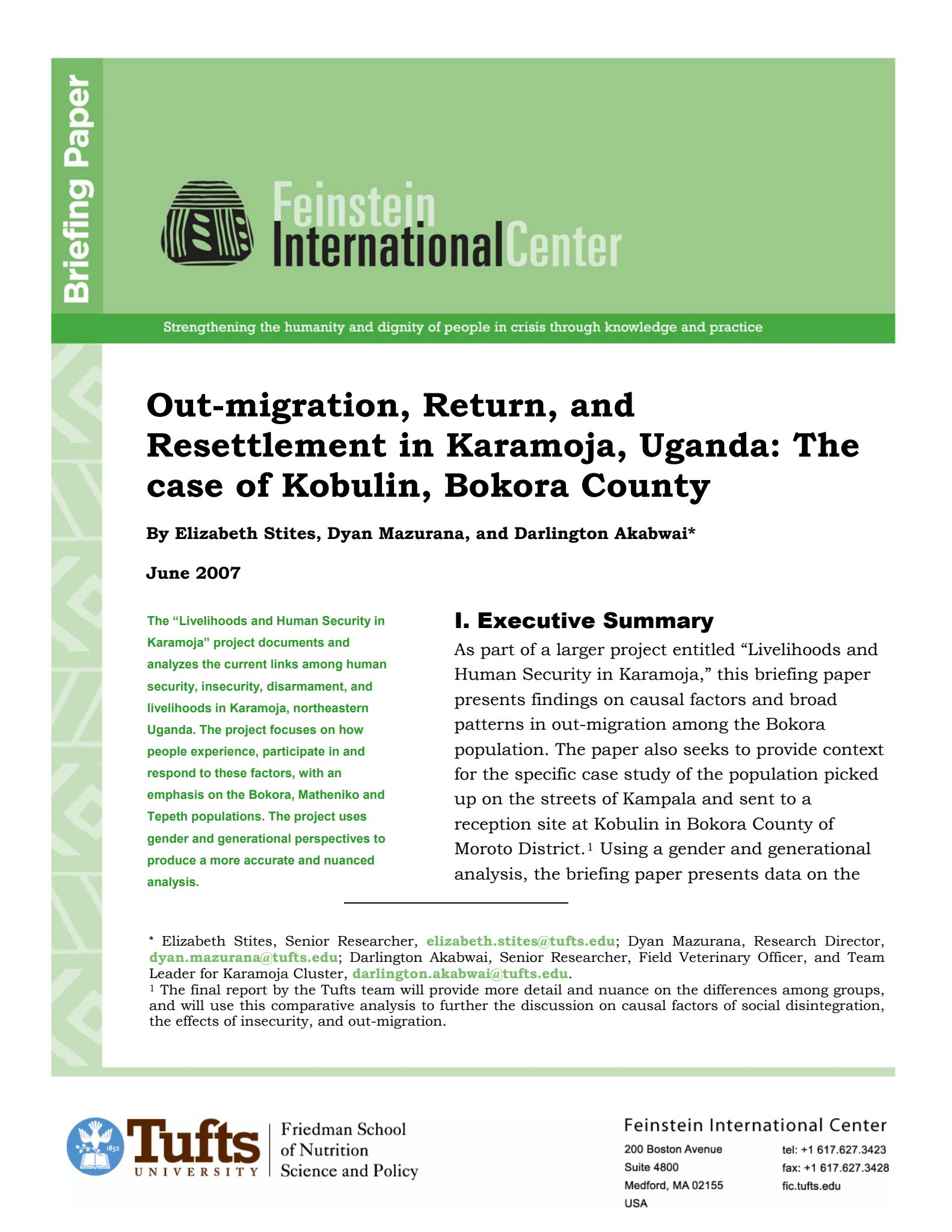
Out-migration, Return, and Resettlement in Karamoja, Uganda: The case of Kobulin, Bokora County
As part of a larger project entitled “Livelihoods and Human Security in Karamoja,” this briefing paper presents findings on causal factors and broad patterns in out-migration among the Bokora population.